
®





®



Yosemite National Park is the exceptional site for the CVMA’s Spring Seminar. Veterinarians earn 12 CE units by attending morning sessions and then spend afternoons exploring this scenic park. This event sells out quickly every year! For more information, visit cvma.net.
CAVMRC Training Class, March 22, 2020
Receive detailed information on emergency/critical care topics that can be used in your everyday practice as well as during a disaster response and earn 7.5 CEUs. For more information, see page 15.
Pacific Veterinary Conference in San Francisco, June 18–21, 2020
More than 245 CEUs are available for veterinarians, veterinary technicians, veterinary assistants, and practice managers presented by world-class speakers in 15 tracks. Attend the most current CE sessions; special events like the Legislative Luncheon, Gala Awards Ceremony, and President’s Reception; and the Vet Expo in exciting San Francisco. For more information, see page 28.
SAVE THE DATE!
CVMA Fall Seminar in Palm Springs, October 9–11, 2020 Registration opens May 2020.
Earn CE with the CVMA Online Seminars
Below are our upcoming online seminar topics. Please refer to page 44 for dates and details.
• Sexual Harassment Education and Training
• Introduction to Cannabinoid Medicine: What Veterinarians Need to Know
• Judicious Use of Medically Important Antimicrobial Drugs
Registration for all CVMA events can be made online by logging onto cvma.net or by calling 800.655.2862.
For the timeliest CE information, visit Learning at cvma.net.
California Veterinarian (ISSN 00081612) is published bi-monthly by the California Veterinary Medical Association, e-mail: staff@cvma.net. California Veterinarian is an official publication of the California Veterinary Medical Association. Subscription rate for members is $20 per year, included in the dues. Annual subscription rates to non-members: $50 U.S., $60 Canada/Mexico, $70 overseas. Price per single copy: $10 current year, $12 back issues. Periodicals postage paid at Sacramento, CA and at additional mailing offices. POSTMASTER: Send address changes to California Veterinarian, 1400 River Park Dr., Suite 100, Sacramento, CA 95815-4505. Phone: 800.655.2862
The CVMA and California Veterinarian assume no responsibility for material contained in articles and advertisements published, nor does publication necessarily constitute endorsement by them. ©2020 CVMA
Volume 74 Number 01 • January–February 2020
The Publication of the California Veterinary Medical Association
Publisher Valerie Fenstermaker
Managing Editor Kristen Calderon
Editor Trisha Consunji
Publication Designer Howard Steffens
Classified Advertising Laura Phillips
Board of Governors
President Dr. Bryan Halteman
President Elect Dr. Dirk Yelinek
Member-at-Large Dr. Elisabeth Klapstein
Members Dr. Patrick Connolly
Dr. Larry Correia
Dr. Jennifer Hawkins
Dr. Michael Karle
Dr. Nada Khalaf
Dr. Adam Lauppe
Dr. Julia Lewis
Dr. Bruce Lindsey
Dr. Keith Rode
Dr. Marshall Scott
Dr. Dianne Sequoia
Dr. Peter Vogel
Student Representatives
University of California, Davis Ms. Brennah Montague
Western University Ms. Darleen Tu
Treasurer Dr. George Bishop
Chair, House of Delegates Dr. Peter Bowie
CVMA Staff
Executive Director Valerie Fenstermaker
Assistant Executive Director Della Yee
Director of Communications Kristen Calderon
Director of Finance Kathy Van Booven
Director of Regulatory Affairs Dr. Grant Miller
Design and Marketing Manager Howard Steffens
Membership and Student Services Laura Phillips
Manager
Publications Manager Trisha Consunji
Accountant Bernice Evans
Executive Assistant Georgia Ashley
Communications Coordinator Nicole Heath
Finance Coordinator Sharmele Browne
Legislative Coordinator Seanna Griffis
Meetings and Events Coordinator Lily Briggs
Membership and CE Coordinator Jennifer Smith
Receptionist Mary Young
Display Advertising
Please contact Trisha Consunji at 916.649.0599 or tconsunji@cvma.net.
Tell us what you think!
Want to comment on what the CVMA is doing or writing about? Send an email to comments@cvma.net or call 800.655.2862. Your thoughts and opinions matter to us. The CVMA is YOUR association! The CVMA is 8,200 voices strong. Let us hear your voice!
Ilooked back at the 2010 “As I See It” article and wondered if I wrote any thoughts for the new decade. Apparently, I wasn’t thinking that far ahead and just wrote 10 wishes for the 2011 new year. They included a hope that the economy would pick up (and it has); a hope that we wouldn’t have any natural disasters (that didn’t happen), but if we did that our CAVMRC would provide a great response (and we have many times over); and that the Pacific Veterinary Conference would be a hub for California veterinary professionals to gather together to learn, network, and enjoy great cities (and it is).
The CVMA has conducted three economic surveys over this decade and we will post the full findings from 2019 on our website this month. Some interesting projections and considerations for the new decade can be drawn from the input of California veterinarians and registered veterinary technicians. For starters, a large majority of veterinarians and RVTs continue to be satisfied with their current job, although the degree of satisfaction increased with age. Veterinarians however are split when it comes to the health of the veterinary industry.
Looking back, the rise of corporate veterinary medicine has definitely changed the landscape of veterinary practice over the past decade. While the majority of those who took the survey did not think the growth of corporate practice was good for veterinary medicine, the indicators also show that interest in practice ownership has steadily decreased. There are many factors to be considered—student debt, work/life balance, and a desire to not want to deal with the business side of practice, among others. On the other hand, veterinarians have successfully owned practices for many years and the CVMA survey showed that practice owners have a higher income and therefore a greater ability to pay off debt. There is a place for both and a balance of both corporate and private practice is good for the profession. If you are thinking about ownership, talk to your colleagues, veterinary practice managers, and a financial planner. Also, consider a partnership since practices with multiple owners are shown to be more likely to have higher salaries. A growing number of practices reported having one or more female practice owners, which is also a growing trend.
While you all have many wonderful clients, there are those that do not understand the challenges of treating animals or the increased cost of veterinary medicine over the last 10 years. Social media has allowed for negative comments of all kinds and veterinary professionals are not exempt which has led to a greater awareness of wellness. Mental health/stress/compassion fatigue/suicide was the highest industry concern for veterinarians in the CVMA survey followed closely by student debt. RVTs’ highest industry concern was salary/better compensation followed by mental health issues. There are societal concerns that an increased dependence on technology isolates us from others. We are connected to our smart phones and social media circles like never before. It’s important to value the wisdom of your colleagues because talking to each other “in-person” is positive interaction. Whether it is to discuss a difficult case, a tough day, job issues, or a great day, it’s good for our souls. Maybe the next decade will do a reverse and steer us back a little in that direction.
The ever-changing face of social media and technology continues to introduce new challenges and it’s hard to know what to expect for the veterinary profession by 2030. It is important that the veterinary community works together to address these issues for the health and welfare of both veterinary professionals and their patients. The CVMA leadership and staff are committed to assisting you throughout this decade in maintaining a healthy and prosperous veterinary career.
I hope you all have a very Happy New Year and decade!
Valerie Fenstermaker
I would like to share a difficult situation I had last month that was ethically challenging. It was my first case that made me question decisions made by the client and myself. This case took me some time to reconcile myself with the situation. Luckily, I have great support at my hospital, who helped me both with the case and accepting the outcomes.
The situation went like this. The patient, an adult intact female dog, presented for signs of pyometra. I ran bloodwork which showed marked azotemia, dehydration, electrolyte imbalances, marked neutrophilia with bands, and moderate monocytosis. Along with a fast abdominal ultrasound, I was confident that this dog did in fact have a pyometra.
I told the client the news. She was aware of pyometras because she is a breeder and said she had a previous bitch with a pyometra survive with medical management. The client asked me if we could try that, which was reasonable given her experience. After all, this dog was a beloved pet but foremost used for breeding. I explained to the client that I was hoping we could avoid surgery but according to the lab work, her dog was very sick. She initially agreed to stabilization and an immediate spay.
I had made arrangements at my local specialty hospital. As I was helping the client and dog to the car and off to proper care, the client suddenly proclaimed that she did not want to do surgery and she wanted to treat her at our hospital. I tried multiple times to change her mind but she persisted. I realized she made her decision and I had to act or else I feared this dog would not receive any care.
Long story short, the dog died after two days of hospitalization. I was sad. Angry. Troubled by my decision. I didn’t sleep that night. I called the client the next day to see how she was doing. She was sad yet thanked me for the attempt at saving the dog’s life. We discussed the differences between this dog and her other dog’s successful pyometra case. I could not say this over the phone, but I knew this was a likely outcome given the severity of the dog’s state. Nevertheless, it was ultimately the client’s decision.
It took me awhile to grapple with my emotions and come to terms with what had happened. I understand now that I did what I could in light of the client’s decision. Sometimes, that’s all we can do. Realistically, all of our decisions are based on what the clients decide. Most of the time my decisions and the clients’ are the same. Sometimes finances dictate what I can do, which is understandable. Finally, some decisions are made against advice and consequences can occur.
This client is still a client of our hospital. She is a good person, owner, and breeder. I saw another one of her dogs last week. All you can do in these types of situations is make the best decisions possible given the circumstances. If the outcome is not ideal, learn from it and move on to help the next patient.
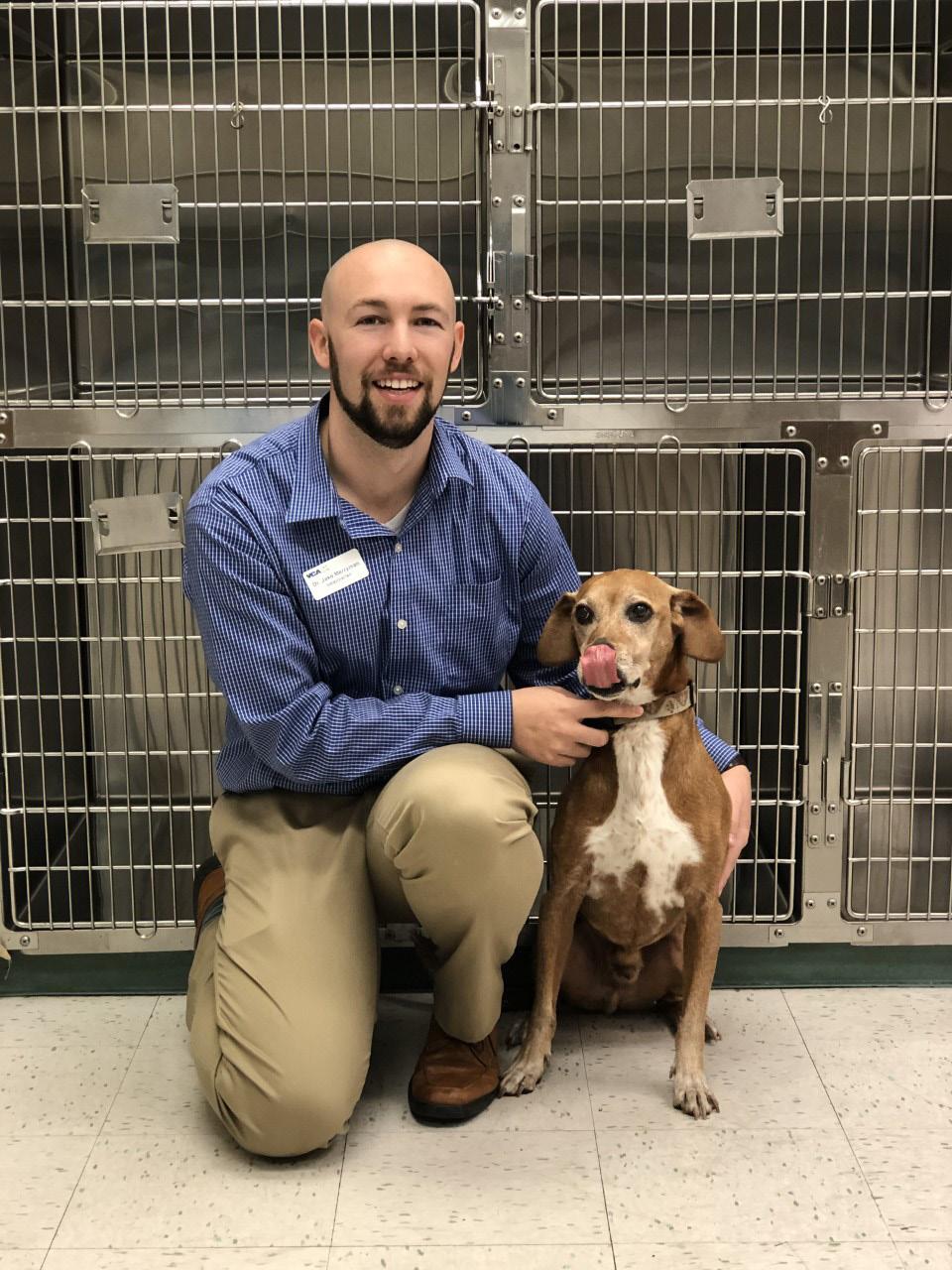
Cal/OSHA Form 300A Posting Requirement

Cal/OSHA Form 300A is a summary of specified job-related illnesses and injuries that have been reported by businesses in 2019. Businesses must post this form between February 1 and April 30, 2020. Visit dir.ca.gov/ dosh/DoshReg/ApndxB300AFinal.pdf to access the form.
Change to California Code
The California Veterinary Medical Board (VMB) amended the California Code of Regulations, Title 16, Section 2032.1 – The veterinarian-client-patient relationship to address telemedicine. The updated law may be found on the VMB website in the Laws and Regulations section in the California Code of Regulations – Veterinary Practice Act under Article Four.
Mandatory Fingerprinting Requirement for License or Registration Renewal Veterinarians and registered veterinary technicians are required to furnish a full set of fingerprints to the Department of Justice as a condition of license or renewal. This is a mandatory requirement. For more information, visit vmb.ca.gov/licensees/fingerprint_req.shtml.
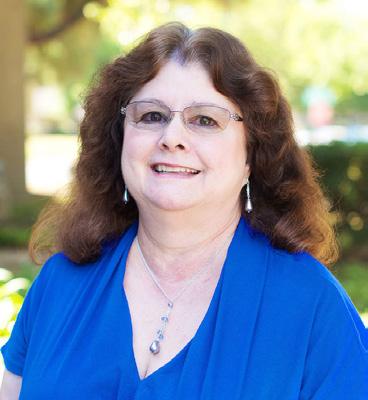
After 25 years as the CVMA’s Director of Membership and Web Services, Debbie Cary is retiring. In her position, Debbie made sure our members were well cared for, our websites were running smoothly, and she served as a staff liaison to various committees. She has been a valued member of our team and will be sorely missed. We wish her happy times camping, completing the never-ending list of home improvement tasks, and spending both quality and quantity time with family and friends.
Board of Governors Meeting@WestinSouthCoastPlaza
Leadership Forum@WestinSouthCoastPlaza
House of Delegates Meeting@WestinSouthCoastPlaza Allied Industry Committee Meeting@CVMA
 by Steve Marmaduke, Esq. By
by Steve Marmaduke, Esq. By
Recently, the issue of whether a worker is classified as an employee or an independent contractor has received considerable scrutiny. On April 30, 2018, the California Supreme Court issued its opinion in Dynamex Operations West, Inc. v. Superior Court (Dynamex), when it adopted new standards for determining whether a worker in California should be classified as an employee or an independent contractor for the purposes of wage orders adopted by California’s Industrial Welfare Commission. Assembly Bill 5 (AB 5), a new California law effective January 1, 2020, expands the application of the Dynamex decision significantly, and will make it more difficult for California workers to qualify as independent contractors. This judicial and legislative scrutiny emphasizes how important it is to correctly classify workers as employees or independent contractors, particularly as employees are entitled to numerous rights that do not apply to independent contractors. The failure to properly classify an employee can leave an employer vulnerable to liability for payment of overtime, breaks, benefits, and paid sick days among other claims.
As will be discussed later, the Dynamex verdict and AB 5 did not change the classification process applicable to veterinary practices. Nonetheless, there may be practical implications. At the least, an understanding of the classification process may be valuable to veterinarians as employers and employees.
To fully understand the effect of Dynamex and AB 5 on veterinary practices, some background may be helpful.
For the last 20 years, the predominant test for the determination of independent
contractor status was the test set forth by the California Supreme Court in its opinion in Borello & Sons v. Department of Industrial Relations (Borello test). The Borello test made no presumption of employee or independent contractor status, but instead relied on 10 factors to determine whether a service provider was an independent contractor or an employee. Although none of the 10 factors were determinative on their own, the focus of the factors was the amount of control that the business had over the worker. If the business had control, the worker was likely to be classified as an employee. If the worker was independent of the business’s control, the balance could favor independent contractor status.
In Dynamex, the Supreme Court abandoned the Borello test for the determination of a worker’s right to wage and hour law protections and adopted what is referred as the “ABC test.” Unlike the Borello test, the ABC test presumes the worker is an employee unless the business can demonstrate that: (A) The hiring entity does not control or direct the performance of work; (B) the person performs work outside the usual course of the hiring entity’s business; and (C) the person is customarily engaged in an independently established trade, occupation, or business. It is the “B” portion of the
ABC test that is problematic for many professional employers, including veterinarians. The bottom line is that if a worker is providing services within the usual course of a veterinary practice, such as an associate, relief veterinarian, RVT, or a groomer, that worker will be classified as an employee.
The intended purpose of AB 5 was to codify and expand on the California Supreme Court’s ruling in Dynamex and expand the application of the ABC test. Although AB 5 does not provide complete clarity, it will have several significant impacts. Primarily, it codifies the ABC test and the presumption that a worker is an employee. It also expands the scope of the ABC test beyond the traditional wage and hour laws. As a result, more workers will be considered employees rather than independent contractors.
AB 5 contains a number of exceptions to the application of the ABC test. For example, there are exceptions for professional services, specific occupations, business-to-business contracts, referral agencies, and the construction industry. These exceptions should not be misconstrued to imply that workers within these exceptions are independent contractors. Instead, the exception means that the Borello test, not the ABC test, will be used to classify the workers as independent contractors or employees.
Also within the exceptions from the application of the ABC test are specific occupations licensed by the State of California. These occupations include architects, engineers, doctors, dentists, lawyers, AND veterinarians, among other licensees.
Does the exception for veterinarians contained in AB 5 mean that veterinarians do not need to worry about classification issues?
Again, AB 5 and Dynamex do not change the classification test applicable to veterinarians.
Simply, as of January 1, 2020, the Borello test, which had been applied prior to Dynamex, shall again continue to be applied. As a practical matter, however, the focus on the classification issue generated by Dynamex and AB 5 may have a great impact on veterinary practices.
For many years, I have received inquiries from veterinarians and others concerning classification issues. Many of the issues I have considered in the veterinary field would result in a determination of employee status under the Borello test or the ABC test. Broadly speaking, most associate and relief veterinarians should be classified as employees under the Borello test. The attention to classification issues generated by Dynamex and AB 5 may spur independent contractors to consider whether they may have been misclassified and be entitled to certain rights such as overtime, benefits, lunch breaks, etc., that they did not previously know they had. Further, federal and state agencies may look back to determine if employers correctly withheld taxes, disability, and other payments, and paid for workers’ compensation benefits.
The bottom line is that it is important that veterinarians who utilize independent contractors, revisit the classification process to determine whether the classification is correct. If not, changes should be made to minimize the future liability of employers and to comply with California law. Those who have been misclassified as independent contractors may wish to consider what rights they have as employees. The next few years may bring clarification regarding the classification of independent contractors and employees as the courts and the legislature consider the issues further. If the trend continues, it is likely that employee rights will be expanded and it will become increasingly difficult (and risky) to classify workers as independent contractors.
Mr. Marmaduke has been a partner with Wilke Fleury LLP for 29 years and has been practicing law in California for over 35 years. One of his primary focuses is the representation of physicians and medical groups in matters ranging from corporate structure, mergers and acquisitions, joint ventures, business transactions, regulatory issues, and professional employment.
Mr. Marmaduke is part of the CVMA’s Legal Services Program, a program designed to assist CVMA member veterinarians with workplace safety, legal issues, and laws and regulations that affect the veterinary profession.
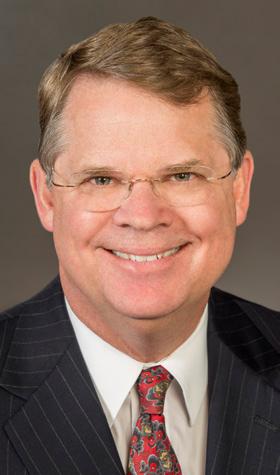

Legislators make decisions on thousands of bills each year affecting a multitude of professions and interests. Many of those bills directly affect you, your patients, and your ability to practice veterinary medicine in California. The CVMA-PAC provides the essential resources to establish and build relationships with key lawmakers making us their trusted resource on issues relating to veterinary medicine. It also provides bipartisan support for state legislators who are sensitive and responsive to issues affecting veterinarians and animals.
Your individual contribution is combined with contributions from veterinary professionals across the state who are equally concerned and wish to protect the interests of the profession. As a member of the veterinary community, everyone has an important role to play in the political process.
We thank the following people for their contribution and ask those who have not yet contributed to do their part by sending a check payable to the CVMA Political Action Committee.
Thank you to our CVMA-PAC contributors. (Contributions received July 2019–December 2019.)
Presidential Level ($1,000 and above)
Dr. Chris Cowing
Dr. Diane Craig
Dr. Andrew Moffatt
Dr. Marshall Scott
Dr. Brent Wooden
Governor Level ($500–$999)
Dr. Jon Peek
Dr. Chris Wong
Senator Level ($150–$499)
Dr. Charles Acton
Dr. Peter Bowie
Dr. Marta Granstedt
Dr. Barrie Grant
Dr. Andrew Hagan
Dr. Frank Hagan
Dr. Eric Hammans
Dr. Juliette Hart
Dr. Edward Jackson
Dr. Robert Leyba
Dr. Terry McDuffee
Dr. Keith Rode
Dr. Birinder Sahai
Dr. Satish Srungaram
Dr. Keira Troxell
Capitol Level ($75–$149)
Dr. Carol Adams
Dr. Khushwant Ahi
Dr. Majid Ahmed
Dr. Nina Akana
Dr. Musa Alshehabat
Dr. Dawn Alves
Dr. Nagy Amin
Dr. Mark Anderson
Dr. Douglas Anez
Dr. Mari Lynn Anger
Dr. Deborah Aparicio
Dr. Daniel Apple
Dr. Alex Ardans
Dr. Robert Arrick
Dr. Igor Arzumanian
Dr. Kevin Ashbran
Dr. Marcella Ashton
Dr. Rosalie Atkins
Dr. Robert Avery
Dr. Joanne Bak
Dr. Natalie Barrett
Dr. Gurvinder Bath
Dr. Diana Bauer
Dr. Bruce Bauersfeld
Dr. Richard Benjamin
Dr. Christy Berg
Dr. Karambir Bhullar
Mr. Thomas Biasotti
Dr. Waka Blair
Dr. Avi Blake
Dr. Karen Blount
Dr. Kathleen Boehme
Ms. Laura Boone
Dr. Laura Booth
Dr. Frank Borostyankoi
Dr. Christopher Bory
Dr. Cara Bradley
Dr. Grace Bransford
Dr. Chamkaur Brar
Dr. Jason Bravos
Dr. Michael Brink
Dr. Natalie Broomhall
Dr. Alice Bugman
Dr. Bruce Burch
Dr. John Burkhartsmeyer
Dr. Katherine Burt
Dr. Erin Byrne
Dr. Victoria Cain
Dr. Antonia Calomfirescu
Dr. Todd Calsyn
Dr. Kristin Campbell
Dr. Laura CampbellMonteiro
Dr. Evelyn Carter
Dr. Steve Carter
Dr. Kamaryn Casey
Dr. Jennifer Cassidy
Dr. Isabel Chan
Dr. Sharon Chancellor
Dr. Tina Chang
Dr. Yun Cheng Chen
Dr. Jill Child
Dr. Corea Kie-Joon Choi
Dr. Kenneth Cholden
Dr. Gerald Citek
Dr. David Clark
Dr. James Clark
Dr. Tristan Clark
Dr. Joanne Clemitson
Dr. Amy Carr Concannon
Dr. Steven Craft
Dr. Tyler Craft
Dr. Martin CrawfordJakubiak
Dr. Bruce Curley
Dr. Kimberly Daffner
Dr. Julie Damron
Dr. Steven Dana
Dr. Chelsea Davidson
Dr. Martha Davis
Dr. James DeLano
Dr. Anne Chiapella Delanoy
Dr. Kimberly Dembinski
Dr. Bruce Dennie
Dr. Ryan DePaul
Dr. Cellu Dhawan
Dr. Andrew Dibbern
Dr. Frank Diegmann
Dr. Sarah Dilworth
Dr. Abigail Dimock
Dr. Michael Doe
Dr. Rey Dominguez
Dr. Kelley Doocy
Dr. Calvin Dotti
Dr. Diana Drumm
Dr. Julio Duran
Dr. Gerald Dzendzel
Dr. David Edsall
Dr. Michal Ekladios
Dr. Michael Engelsgjerd
Dr. Wagdi Estafanous
Dr. William Estheimer
Dr. Arturo Esquivel
Dr. Fahmy Fahmy
Dr. Claudine Falcis
Dr. Elizabeth Ferderbar
Dr. Christopher Langdon
Fielding
Dr. Kristen Finch
Dr. Randall Fitch
Dr. Cynthia Fitzgerald
Dr. Rebecca Florio
Dr. Halley Fobes
Dr. Melissa Fogel
Dr. Janet Foley
Dr. Brenda Forsythe
Dr. Marvin Frace
Dr. Virginia Frauenthal
Dr. Stacy Fuchino
Dr. Michelle Fuller
Dr. Yves Galea
Dr. Rick Garcia
Dr. Sharon Hunt Gerardo
Dr. Kathy Gervais
Dr. Michael Giacopuzzi
Dr. Richard Giacopuzzi
Dr. Shahrzad Giahi
Dr. Victoria Giampaoli
Dr. John Giannone
Dr. Kanwalpreet Gill
Dr. Surat Gill
Dr. Vikraj Gill
Dr. Diane Glover
Dr. Hannah Goorsky
Dr. Paul Gordon-Ross
Dr. Dana Graham
Dr. Jack Gregg Jr.
Dr. Clare Gregory
Dr. Harbinder Grewal
Dr. Sarah Griffel-Thompson
Dr. Gary Griffenhagen
Dr. Jay Griffiths
Dr. Eric Griesshaber
Dr. Lynda Guenther
Dr. Arnold Gutlaizer
Dr. Sindy Habib
Dr. Timothy Haevernick
Dr. Gerald Haggard
(Continued from page 11)
Dr. David Young
Dr. Norman Zachery
Dr. Craig Zelles
Other (Up to $75)
Dr. Natalie Abdypoor
Gloria Aguilar, RVT
Wendy Albrecht, RVT
Irene Apodaca, RVT
Dr. Hygan Baghoyan
Dr. June Barrera
Dr. Nimir Bath
Ashley Berenstein, RVT
Genevieve Bertain, RVT
Dr. Kaitlen Betchel
Elisabeth Binkley, RVT
Savana Bollmann, RVT
Maria Boyanton, RVT
Dolores Brannon, RVT
Cristian Brebu, RVT
Lilian Brown, RVT
Dr. Jessica Buehler
Cheryl Buhler, RVT
Deborah CalantropioCovington, RVT
Dr. Kendall Cannon
Karla Cano, RVT
Stephanie Cano, RVT
Nicholas Channell, RVT
Amie Chapman, RVT
Julie Chun, RVT
KelliNicole Clements, RVT
Cora Clewell, RVT
Kerissa Clutters, RVT
Kimberly Coe, RVT
Silvia Coverson, RVT
Kevin Collins, RVT
Dr. Dallas Wentz
Dawn Danielson, RVT
Dr. Chelsea Dauer
Dr. Heather Deleon
Pearl DiGenova, RVT
Nancy Dinh, RVT
Sophia Dority, RVT
Dr. Hannah Drumm
Alice Ehrlich, RVT
Rebecca Enneking, RVT
Patty Ferrin, RVT
Leon Figard, RVT
Adam Filowitz, RVT
Laura Fink, RVT
Karen Flewelling, RVT
Lesley Francis, RVT
Jennifer Fujita, RVT
Dr. Tiana Fulton
Katherine Gallie, RVT
Dr. Cheryl Garcia
Julie Gilroy, RVT
Brittney Goodwin, RVT
Samantha Graham, RVT
Carlo Guthrie, RVT
Susan Hamil, RVT
Cody Hamilton, RVT
Sheyenne Harlacher, RVT
Karen Hartman, RVT
Brenda Hasko, RVT
Cheryl Haslam, RVT
Lynzee Hatfield, RVT
Dr. Jennifer Hauss
Jean Hescox, RVT
Jennifer Higuera, RVT
Nannette Hodgetts, RVT
Melanie Hupe, RVT
Alyson Iwamura, RVT
Valarie Johnson, RVT
Wendy Johnson, RVT
Holly Jones, RVT
Jennifer Kennedy, RVT
Dr. Kimberly Kessler
Dr. Emily Kian
Brandi Kleeger, RVT
Shawna Kliebe, RVT
Dr. Briana Konigsberg
Melissa Kriegler, RVT
Heather Krogstad, RVT
Kendra Larsen, RVT
Alexandra Laudel, RVT
Robin Lawton, RVT
Dr. Boram Lee
Dr. Katherine Lejeune
Margaret Lyman, RVT
Shawn Lynch, RVT
Benjamin Mabley, RVT
Debbi MacInnes, RVT
Nanette Markham, RVT
Kayla Martin, RVT
Katherine Martinez, RVT
Susan Mathew, RVT
Jodie May, RVT
Lauren Maynard, RVT
Chelsea McCarty, RVT
Siobhan McDowell, RVT
Dr. Molly McElrath
Dr. Ethan McEnroe
Dana McNabb, RVT
Dr. David Messri
Dr. Mona Miller
Kellie Molina, RVT
Cassie Moore, RVT
Iris Morales, RVT
Donna Morgan, RVT
Donna Nagahisa, RVT
Melody Neill, RVT
Brienne Nelson, RVT
Dr. Geena Ng
Dr. Richard Nguyen
Amy Nichols, RVT
Dr. Tracy Noda
Lisa Noriega, RVT
Alina Norris, RVT
Dr. Micheal O’Hara
Mia Ollikainen, RVT
Christy Pacifico, RVT
Shannon Peck, RVT
Leslie Peek, RVT
Sonya Perez, RVT
Leslie Phillips, RVT
Caitlin Phillips-Caldeira, RVT
Mary Pinkham, RVT
Bryson Plater, RVT
Patricia Potts, RVT
Dr. Katherine Rivard
Diane Rivera, RVT
Kortney Rocha, RVT
Shelly Rogers, RVT
Dr. Joan Rowe, RVT
Lori Santos, RVT
Dr. Rebecca Sawyer
Aimee Schildt, RVT
Lisa Severy, RVT
Lacey Sharp, RVT
Jacqueline Shay, RVT
Leah Shufelt, RVT
Leslie Silva, RVT
Dr. Sarah Silverman
Dr. Alexandra Sinnott
Dr. Tyler Smith
Dr. Erin Smythe
Barbara St. Amant, RVT
Dr. Alicia Brooks Stamp
Rosemary Stanley, RVT
Megan Starbeck, RVT
Mary Stewart, RVT
Dr. Nicholas Storey
Amy Sturlini, RVT
Mark Sugino, RVT
Karen Suter, RVT
Cynthia Swann, RVT
Dr. Carol Szymanski
Ms. Karen Taggart
Dr. Lee Tanng
Dr. Elizabeth Tenborg
Ellen Teneriello, RVT
Tina Teng, RVT
Dr. Katharine Terry
Jesslyn Tilley, RVT
Robyn Tisdall, RVT
Dr. Luigi Topacio
Linda Tripp, RVT
Nancy Turnberg, RVT
Dr. Caitlin Underhill
Dawn Ung, RVT
Darlene Vale, RVT
Dr. Melvyn Silva Valera
Dr. Carol Van Hoogmoed
Wendy Van Horn, RVT
Jean Walton, RVT
Alexandra Williams, RVT
Kathryn Williams, RVT
Dr. Lily Won
Sandi Woods, RVT
Dr. Cara Yanussi
Why choose Gatto McFerson to conduct your practice valuation?
• We have valued over 315 veterinary practices and clinics
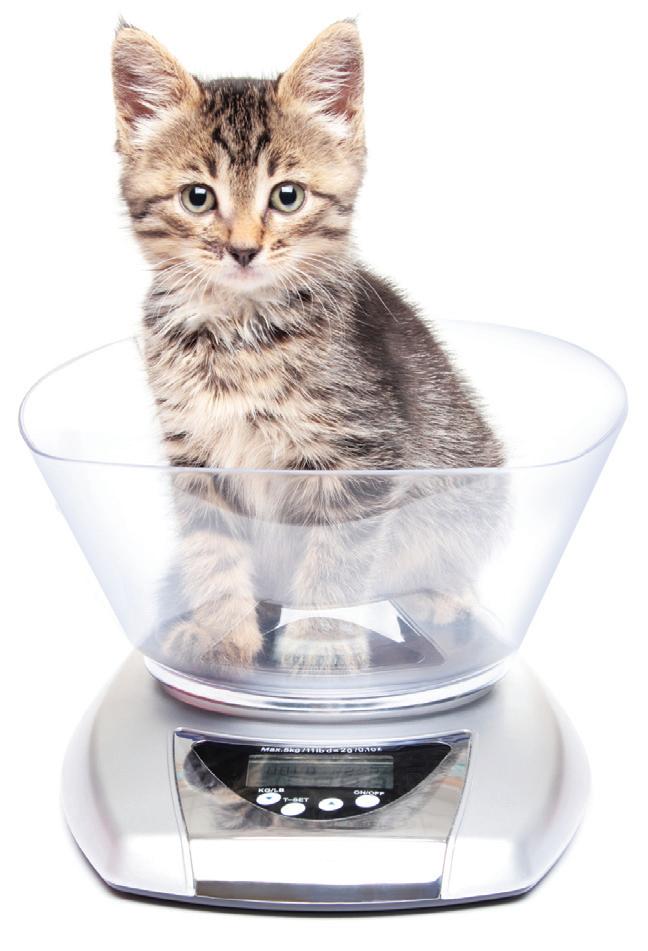
• We have the tax expertise you need when buying or selling
• We are Accredited in Business Valuations, a certification that only CPAs can hold
• We are an independent adviser with no financial stake in the transaction
We are experts in all aspects of:
• Buying and selling a veterinary practice or clinic
• Facilitating associate buy-ins
• Preparing an exit strategy
• Creating an estate plan
• Increasing the value of your practice
To maximize value and minimize taxes, contact:
Lou Gatto, CPA lou@gattomcferson.com
Tom McFerson, CPA, ABV tom@gattomcferson.com
It’s not too late to contribute. The stronger the PAC fund, the stronger our voice will be. Visit cvma.net and click on CVMA-PAC under the Government tab to learn more about the PAC and to contribute online.
Checks should be made payable to:
CVMA Political Action Committee
1400 River Park Dr., Suite 100, Sacramento, CA 95815
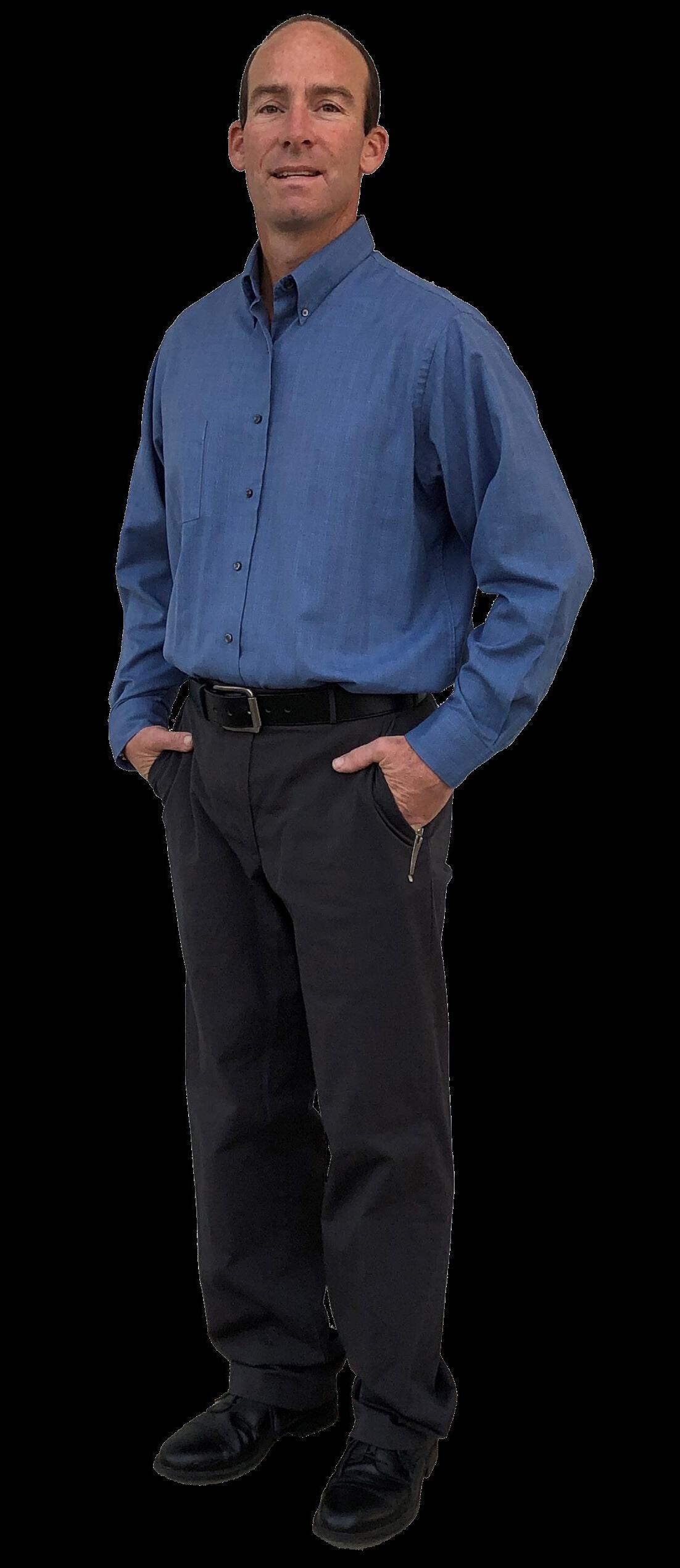
• Owner, Mid-Valley Veterinary Hospital
• Practice type: Primarily food animal general practice
• University of California Davis School of Veterinary Medicine
What was the best advice you ever received?
Always think about what you want said about you at your funeral and do that.
If I weren’t in the veterinary profession, I would be a game warden.
What is your most embarrassing professional moment?
Always thinking I can relate to the veterinary students I mentor, yet I graduated 20 years ago!
Why are you a CVMA member?
Members are the heart of the CVMA
What is the most unusual patient you have cared for?
Hard to decide between a bee and a bison!
I can give back to the profession that has given me a career with immense satisfaction.
If I were an animal, I would be a moose—large and in charge and very good to eat. What are your professional goals?
To become president of the CVMA and stay involved in organized veterinary medicine at the state and national levels.
• Start planning for the new year. A certified appraisal by Simmons & Associates will ensure that your practice is on the right path to success.


•Simmons examines several factors that affect the value and price. Simmons will evaluate profitability, net cash flow, growth potential, and other factors like geographic location.




•Understand every aspect of your practice. Simmons and Associates provides the most accurate valuation which translates to the most accurate price for owners.
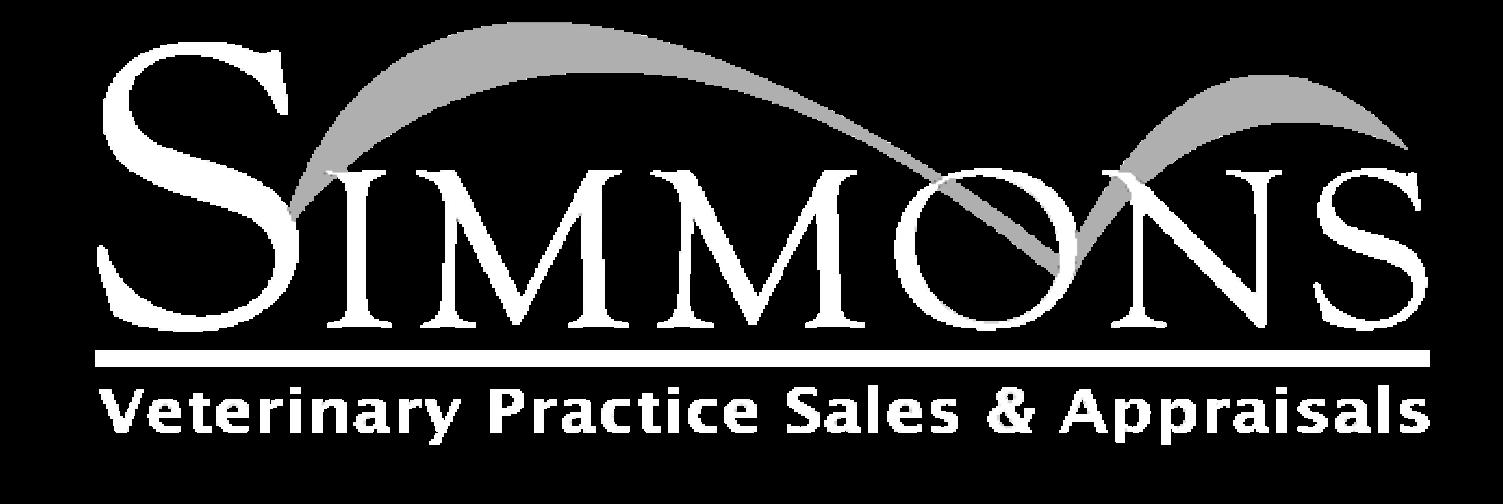


•With over 40 years of experience, Simmons has been the most trusted business advisor for thousands of veterinarians.

With over 2,300 volunteers, the California Veterinary Medical Reserve Corps (CAVMRC) provides emergency veterinary medical care to animals in disasters. The CAVMRC is offering a low-cost, one-day classroom continuing education course to veterinarians, RVTs, and veterinary assistants.

Animals in Disasters – Common Medical Conditions (7.5 CEUs)
Speakers: Dorrie Black, DVM, MPVM, DACVECC; Melinda Mayfield DVM, WCHP-AH; and Grant Miller, DVM
This course provides detailed information on emergency/critical care topics that can benefit you in everyday practice as well as during a disaster response.
c Traumatic Injuries/Triage
c Fire-related Injuries – Burn Assessment/Burn Dressings
c Disease Outbreaks in Temporary Shelters
c Save the Life and the Tissue – Dealing with Wounds During a Disaster
c Deployment in the CAVMRC
Sunday, March 22, 2020
Hyatt Regency Sonoma Wine Country
170 Railroad Street
Santa Rosa, CA 95401
Schedule
Registration: 7:15 am–8:00 am
Course: 8:00 am–5:00 pm
Lunch on your own: 11:30 am–1:00 pm
Ways to Register
• Online at cavmrc.net
• Download the PDF form at cavmrc.net
• Call 800.655.2862
• Register at the door
By March 15, 2020
• CVMA Members: $99
• Non-Members: $119
After March 15, 2020
• CVMA Members: $119
• Non-Members: $139
By registering for this course, you are also registering to become a volunteer member of the CAVMRC, if you are not already a current member. CAVMRC membership is free and participation is strictly voluntary. This course is only available to CAVMRC members.
I appreciate the CVMA’s advocacy for the profession so that veterinarians may continue to practice high quality medicine productively.
~ Heather Bessoff, DVM

I am a CVMA member because the veterinary community needs an organized method to promote, continually improve, and protect the profession on a local and state level.
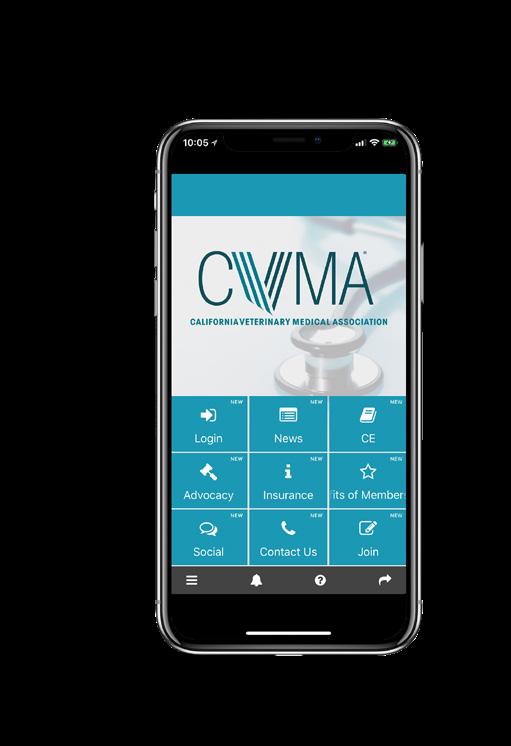
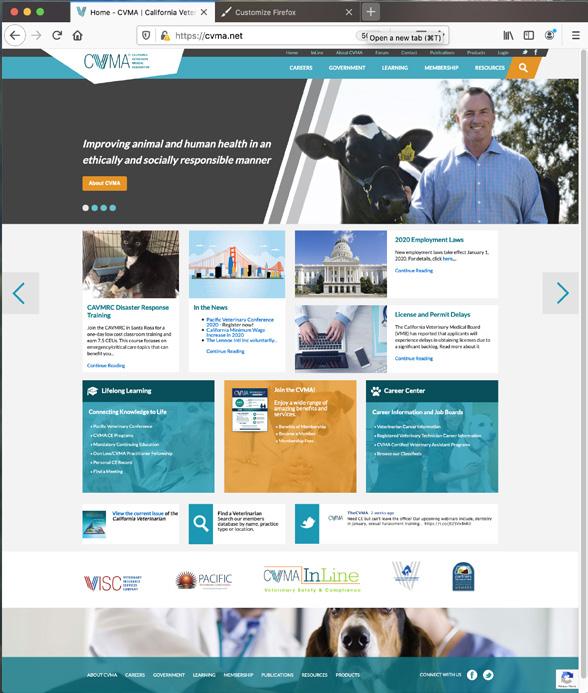 ~ Jason Wood, DVM
~ Jason Wood, DVM
I find there are so many things that affect our profession and I am so grateful we have an association that is in our “corner” advocating for each of us individually.
~ Nicole Hui, BVScI joined the CVMA for the insurance benefits but now I am a member because it is the organization that most reflects my views about veterinary medicine and supports my ability to practice.
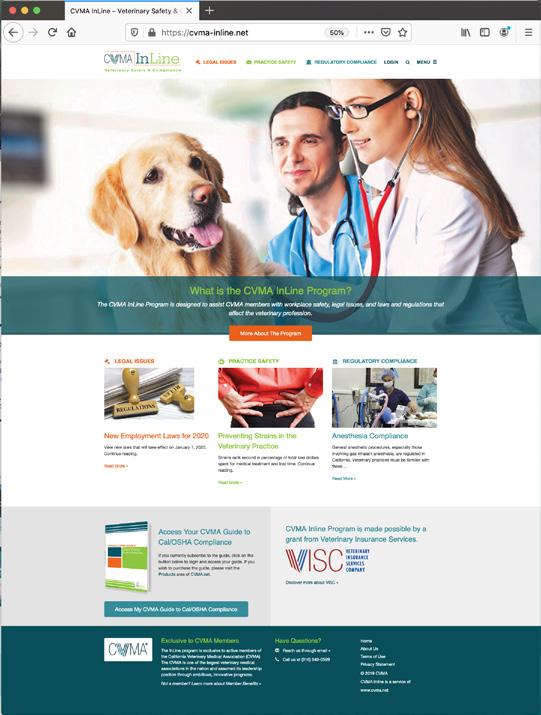 ~ Benjamin Otten, DVM
~ Benjamin Otten, DVM
I think it is incredibly important to be a member of professional organizations in order to steer policy that benefits animals and our communities.
~ Jyothi Robertson, DVM, DABVP (Shelter Medicine)
It is not the fall that hurts, it is the sudden stop that jars joints and breaks bones. Slips, trips, and falls happen so quickly but there are ways to prevent them.
Slips, trips, and falls accounted for 25.8 percent of all workplace injuries in 2017. It was the third most common accident after strains/sprains (33.5 percent) and contact with objects/equipment (26 percent). Typical days lost from a fall is 12. (Source: National Safety Council Injury Facts 2017)
The safety objective of any veterinary practice is to minimize injuries by eliminating the hazards that can cause an accident. The payback is valuable. Employees do not miss time from work, operations run more efficiently, and workers’ compensation costs can be contained. Controlling the hazards that contribute to these accidents and requiring slip-resistant footwear keeps the practice in good stead from a regulatory perspective, too.
The practice’s policy on footwear is a good place to start. Most practices will ask employees to wear slip-resistant footwear. A good slip-resistant shoe will have an interlocking sole pattern of deep channels to prevent hydroplaning. Shoes should be flat with no heels. In large animal practices, the footwear required may be leather boots with steel toes.
Probably the most common cause of slip/fall accidents results from liquid on the floor. Cleaning up patient accidents and substance spills as soon as noticed is a good standard policy. The challenge comes when employees fail to clean up the spill WHEN it is seen. If spills cannot be removed quickly, encourage employees to place a
wet floor sign over the spill or a chair or towel over them so employees and/or clients do not walk through the substance, slipping or spreading the risk to more areas.

For areas where water or other liquids may land on the floor by nature of how the area is used, like bathing areas, the use of rubberized anti-slip mats in work and walking areas can minimize falls.
Falls also happen when objects are placed on the floor in a storeroom, walkway, or hall. When employees place objects on the floor, they are typically not placed in the same spot every time. When walking or changing direction, people are looking ahead, not down. Hoses, electrical cords, containers, and even a fellow employee’s feet can contribute to a fall. Make sure walkways are kept clear and that electrical cords are taped down or covered if they must cross a walkway.
If your practice has a stairwell, make sure it does not become a temporary storage area. Not only does this present a tripping hazard, but blocking stairways violates OSHA safety standards and local fire safety regulations pertaining to emergency evacuation. Citations for these infractions can be costly.
Inspect office seating regularly. Chair seats, casters, legs, and backs can become loose or break. If a person sits down hard, a part can break and the person can land on the floor. If a chair seems to have any loose parts or appears damaged, repair or discard it.
If your practice has a kennel, barn, or stalls, inspect the floors for open drains, troughs, and gutters. If there is a 36-inch or more height difference between the floor and trough, a guardrail is needed. Drains and gutters need covers. Removable covers for gutters make it easier to remove and clean when necessary.
When people fall, they tend to get up quickly to save themselves from embarrassment. Remind employees that if they fall, to stay down until it is determined that a serious injury has not occurred.
By taking the necessary precautions as well as being aware of your surroundings and changes to conditions, the severity and even the likelihood of slips, trips, and falls can be reduced.
Information provided by Preferred Employers Insurance, a Berkeley Company
®
California faces unprecedented wildfire risks like never before. It seems that wildfires are burning more often and that there is no longer a definable fire season in California. According to Cal Fire Statistics, 13 of the 20 most destructive fires in California’s history have occurred since 2007 and eight of these fires since 2017. At the top of the list is the November 2018 Butte County Camp Fire which scorched over 150,000 acres while destroying nearly 19,000 structures and resulted in 85 deaths. The Camp Fire was followed by the October 2017 Tubbs Fire which swept through Napa and Sonoma Counties destroying over 5,600 structures and causing 22 deaths. In 2017 and 2018, California wildfires burned approximately 941,165 acres while destroying a total of 31,400 structures and resulting in 138 lost lives. The financial impact to homeowners, renters, and business owners has topped $10 billion in insured claims each year.
What is concerning is that wildfires are becoming more frequent and losses are not only increasing in severity but also in uncertainty. Geographic areas that have not been considered at risk are experiencing devastating fires and losses. Sparked by several years of dry conditions and changing weather patterns, insurance carriers are more cautious about where they are willing to write insurance coverage. As this trend continues, Californians may experience difficulty finding appropriate insurance coverage and increased rates.
Recent surveys indicate that insurance rates and premiums are increasing on average by 15 percent and higher depending on the location of the property. Insurance analysts are reevaluating the method in which rates are determined. Whereas insurance premiums were based
on “spread of risk,” insurance carriers are now looking at alternatives including riskbased pricing. This approach would result in homeowners and business owners paying more for insurance in areas where the risk of fire is the highest.
Faced with this new reality, what can you do to protect your property, pets, and family?
z Develop emergency evacuation plans.
z Keep a vehicle with a full tank of gas during peak fire season.
z Create defensible space around your property.
z Stock and maintain fire protective equipment such as a fire suppression system, fire alarms, fire extinguisher, water source, and an adequate number of water hoses to reach all areas of your property.
z Use proper construction material such as the following:
Fire resistive roofing material (composition, tile, metal)
Double-pane windows
Ember-resistant vents
Fire resistive siding (stucco, stone, or brick)
Fire resistive landscaping
z Use portable generators.
z Consult with professionals to obtain appropriate insurance coverage.
Keep in mind that the cheapest loss is the one that is avoided. Take time to protect your family and property by implementing these risk management recommendations and provide yourself with peace of mind. Your VISC representative can help. They offer affordable coverage that, in addition to risk management, can help make the aftermath of natural disasters easier to overcome. Call 888.762.3143 for more information.

This benefit entitles CVMA member veterinarians up to one-half hour of telephone and research work per month with an attorney from Wilke Fleury LLP.
Services Offered:
• Business tax issues
• Business owner succession planning
• Cal/OSHA issues
• Contract issues
• Employment law
• Licensure issues
• Practice ownership and organizational structure
• Regulatory and administrative law
• Veterinary Medical Board enforcement issues Services Not Included:
• Criminal law
• Domestic relations
1 Call Wilke Fleury at 916.441.2430
2. Provide your CVMA member ID number
3. Ask for Dan Baxter for issues pertaining to:
• Veterinary Medical Board
• Administrative/regulatory issues
Ask for Steve Marmaduke for issues pertaining to:
• Employment
• Contract
• Lease
• Practice succession or related issues
This program generously sponsored by
The CVMA’s Economic Task Force, which convened to study and report on economic trends affecting California veterinarians (DVMs) and registered veterinary technicians (RVTs), first partnered with EMC Research to conduct a survey of California veterinary professionals in 2013. EMC Research recently conducted a second follow-up survey of DVMs and RVTs. The online survey was conducted in July and August of 2019 and received 2,172 total responses, including 1,488 responses from DVMs (15 percent response rate) and 684 responses from RVTs (16 percent response rate). Responses from DVMs in the 2019 study can be compared to the 2016 and 2013 studies by EMC Research and CVMA, and responses from RVTs can be compared to the 2016 study.
This article, the second in a series, explores ownership and revenue among DVMs in California and pay and benefits among DVM associates, DVM owners, and RVTs in California.
All respondents were asked to report their current pre-tax annual salary or income, including bonuses but not including benefits. DVM owners were also asked to include profit sharing and exclude rental income.
Salaries continue to increase among DVMs, both for owners and non-owners. The proportion of non-owners making less than $80,000 per year has been decreasing since 2013. Seventeen percent of non-owners reported salaries under $80,000, compared to 27 percent in 2016 and 38 percent in 2013. On the other end, the percentage of nonowners making over $120,000 has been growing. Fifteen percent earn over $160,000 and 24 percent earn between $120,000 and $160,000, both increases since 2013 and 2016. A plurality of non-owners earn between $80,000 and $120,000.
There are similar trends among DVMs who own their practice, with higher salaries overall. The amount of owners earning under $80,000 continues to decrease, with 17 percent in 2019 compared to 23 percent in 2016 and 27 percent in 2013. The proportion of owners with salaries of $200,000 or more has increased since 2013; over a quarter (27 percent) of owners reported making more than $200,000 in 2019.
When looking at salaries by gender and ownership, male DVMs are more likely to have higher salaries whether they are owners or associates. Half of male owners report earning more than $160,000 per year, while only 29 percent of female owners report the same. Over half (54 percent) of male associates have salaries over $120,000, compared to 33 percent of female associates.
“When looking at salaries by gender and ownership, male DVMs are more likely to have higher salaries whether they are owners or associates.”
All DVMs surveyed receive a wide variety of benefits, the most common being for education. Over threequarters (78 percent) of associates receive continuing education registration fees, and 75 percent of owners receive continuing education opportunities. A majority of DVMs report association membership dues as a benefit they receive through their practice: 60 percent of associates and 77 percent of owners. Health insurance is another frequently reported benefit, with 68 percent of associates and 66 percent of owners receiving health insurance through their practice.
Continuing education registration fees
Vacation
Health insurance
Association membership dues
401 (k)
Paid time off for continuing education
Dental insurance
Vision insurance
Disability insurance
Life insurance
Other retirement plan
Other
None of the above
Association membership dues
Continuing education opportunities
Health insurance
Vacation
Ownership “perks” that are expensed through the practice
Vehicle expenses
Disability insurance
Dental insurance
401 (k)
Life insurance
Other retirement plan
Vision insurance
Rental income associated with the practice
Other
None of the above
“A majority of DVMs report association membership dues as a benefit they receive through their practice.”
Owners were asked to report their total practice gross revenue for all locations in 2018. Overall, revenues are increasing. The percentage of owners reporting less than $800k in practice revenue has decreased from 40 percent in 2013 and 37 percent in 2016 to 34 percent in 2019. At the upper limit, the amount of practice owners with more than $2 million in gross annual revenue has increased from 22 percent in 2013 and 2016 to 26 percent in 2019. When looking at revenue by ownership, owners in a single-owner practice were less likely to report profits over $2 million while those in multipleowner practices were much more likely to have higher revenues. Over half (56 percent) of owners in multiple-owner practices reported practice revenue over $2 million, compared to only 16 percent of owners in single-owner practices.
All DVM practice owners were asked how their practice’s profitability has changed over the past two years. Profitability continues to increase, with 57 percent of this year’s respondents saying their practice’s profitability has increased. Half (50 percent) of owners reported an increase in profitability in 2016, and only 36 percent said the same in 2013.
A plurality of respondents reported working at a practice with a single owner, though it is slightly more common among DVMs at 45 percent. The next most common type of ownership is corporate, with 29 percent of DVMs working at a corporate-owned practice.
Compared to previous years, more DVMs in private practice work at a corporate-owned practice. While only 15 percent of private practice DVMs said they worked at a corporateowned practice in 2013, that number grew to 24 percent in 2016 and reached 30 percent in 2019.
“Compared to previous years, more DVMs in private practice work at a corporate-owned practice.“
The number of DVMs working at a practice with at least one female owner has increased. In 2019, 58 percent of DVMs had at least one female practice owner at their practice, up from 46 percent in 2016.
DVMs who are not practice owners were asked about their interest in owning all or part of a veterinary practice in the future. Interest in owning a practice has continued to decrease over the years. While only 34 percent of non-practice owners said they were not at all interested in owning in 2013, that number grew to 41 percent in 2016 and 46 percent in 2019.
Which best describes your interest in owning all or part of a veterinary practice in the future?
“Interest in owning a practice has continued to decrease over the years.”
When it comes to choosing a job, the potential for practice ownership is not very important to DVMs. Only 11 percent of respondents said the potential for ownership was extremely important, compared to 8 percent in 2016 and 13 percent in 2013. Factors such as a positive work environment and the clinical quality of practice are much more significant, with over six in 10 DVMs saying that those two factors are extremely important to them.
RVTs also reported receiving an assortment of benefits from their practice, the most common being vacation among 79 percent of RVTs surveyed. Another 73 percent of RVTs receive health insurance through their practice, and 71 percent reported receiving continuing education registration fees. Many RVTs also have recurring expenses covered, such as uniforms (60 percent) and license fees (58 percent).
RVTs reported similar salaries in 2019 compared to 2016, with some small increases in larger salary brackets. More RVTs reported salaries greater than $60,000. Four percent earn over $80,000 and 10 percent earn between $60,000 and $80,000, both increases since 2016.
Thirty-seven percent of RVTs work under a single owner. The next most common type of ownership is corporate, with 31 percent of RVTs working at a corporate-owned practice.

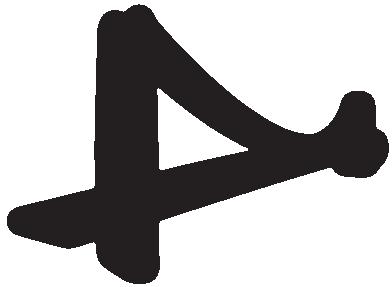
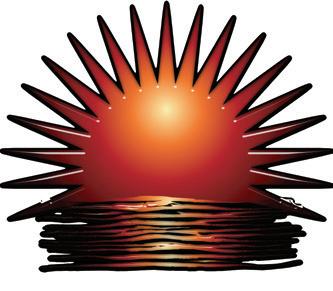
Wednesday, June 17
5:00 pm–6:30 pm
Thursday, June 18
Pre-registered attendees packet pick-up
6:30 am–6:00 pm Registration and information open
7:00 am–8:00 am Continental breakfast
7:00 am–6:00 pm Internet café hours
8:00 am–6:00 pm CE sessions and labs
9:50 am–10:10 am Morning break
12:00 pm–1:30 pm Lunch break (on own)
12:00 pm–1:30 pm CVMA Legislative Luncheon
1:30 pm–2:30 pm Keynote presentation
3:50 pm–4:10 pm Afternoon break
Friday, June 19
7:00 am–6:00 pm Registration and information open
7:00 am–8:00 am Continental breakfast
7:00 am–5:30 pm Internet café hours
8:00 am–5:20 pm CE sessions and labs
9:30 am–6:15 pm Vet Expo hours
9:50 am–10:20 am Morning break – Vet Expo 12:10 pm–2:00 pm* Lunch – Vet Expo
12:10 pm–2:00 pm Student presentations – Vet Expo
1:40 pm
Raffles – Vet Expo
2:50 pm–3:30 pm Afternoon break – Vet Expo
2:50 pm–3:30 pm Student presentations – Vet Expo
3:15 pm Raffles – Vet Expo
5:15 pm–6:15 pm Vet Expo Mixer
6:00 pm Raffles – Vet Expo

6:30 pm–7:30 pm Gala Awards Ceremony
7:30 pm–9:30 pm President's Reception
Saturday, June 20
7:00 am–6:00 pm Registration and information open
7:00 am–8:00 am Continental breakfast
7:00 am–5:30 pm Internet café hours
8:00 am–5:20 pm CE sessions and labs
9:30 am–3:30 pm Vet Expo hours
9:50 am–10:20 am Morning break – Vet Expo
10:00 am–2:00 pm Rabies Titer Testing
12:10 pm–2:00 pm* Lunch – Vet Expo
12:10 pm–2:00 pm Student presentations – Vet Expo
1:40 pm
2:50 pm–3:30 pm
3:15 pm
5:30 pm–7:00 pm
5:30 pm–7:00 pm
Sunday, June 21
7:30 am–2:30 pm
7:30 am–8:30 am
Early Bird Registration Deadline
March 9, 2020
Pre-Registered Attendees Registration Packet Pick-Up
Wednesday, June 17, 2020 • 5:00 pm–6:30 pm
Vet Expo Open
y Friday, June 19, 2020
y Saturday, June 20, 2020
CE Sessions
y Thursday, June 18, 2020
y Friday, June 19, 2020
y Saturday, June 20, 2020
y Sunday, June 21, 2020
Follow @PacVet to stay up-to-date with conference updates and network with conference attendees!
Use the conference hashtag #PacVet2020 to see all the social chatter!
Raffles – Vet Expo
Afternoon break – Vet Expo
Raffles – Vet Expo
Alumni receptions: UC Davis and WesternU
Technician Fair exhibits and reception
Registration and information open
Continental breakfast
7:30 am–12:00 pm Internet café hours
8:30 am–2:05 pm* CE sessions
11:20 am–11:50 am Morning break
*Times vary by track. Schedule subject to change without notice.
Facebook.com/pacvet
Twitter.com/pacvet
Instagram.com/pacvet conference

Our exhibitors are trusted allied industry partners who generously support the conference. Their valuable contributions lower conference costs and help us in serving our attendees. Be sure to visit their booths in the Vet Expo and check out their websites at PacVet.net.
Early-Registered Exhibitors
• AKC Reunite
• Analgesic Services, Inc.
• ANTECH-SOUND
• ASPCA Pet Health Insurance
• Avid Identification Systems, Inc.
• Bank of America Practice Solutions
• BCP Vet Pharmacy
• Blue Buffalo Co.
• Blue River PetCare
• Boehringer Ingelheim
• California Veterinary Medical Association
• California Veterinary Medical Foundation
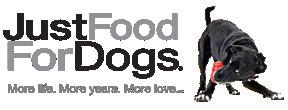
• California Veterinary Medical Reserve Corps
• Capstone Financial Group
• CareCredit
• CBC Practice Banking
• Christian Veterinary Mission
• Companion Animal Health
• Covetrus
• CryoProbe
• Cubex
• Dan Scott & Associates, Inc.
• Dechra Veterinary Products
• Diagnostic Imaging Systems, Inc.
• Doctor Multimedia
• DV Medical Supply
• DVM-Transitions.com
• Elanco Animal Health
• Ellman, a Cynosure Company
• Elsevier, Inc.
• Esaote North America
• ExeGi Pharma
• GlobalVetLINK
• Golden Gate Veterinary Compounding Pharmacy
• Gravity Payments
• Heska
• Hill’s Pet Nutrition, Inc.
• IDEXX Laboratories
• Infintech
• Jorgensen Laboratories
• JustFoodForDogs
• Karl Storz Veterinary EndoscopyAmerica, Inc.

• KindredBio
• KVP - KONG Veterinary Products
Confirmed exhibitors through 01/6/2020
• Lap of Love Veterinary Hospice
• LifeLearn Animal Health
• Medical Illumination
• Medical Pet Shirts International
• MediVet Products
• Merck Animal Health
• Midwest Veterinary Supply
• Multi Radiance Medical
• MWI Animal Health
• Nationwide Pet Insurance
• Nutramax Laboratories Veterinary Sciences, Inc.
• Otto Trading Inc.
• Pet Health Pharmacy
• PetCure Oncology
• Practivet
• Preferred Employers Insurance
• PRN Pharmacal
• Purina Pro Plan Veterinary Diets
• Radiocat
• rauhaus freedenfeld & associates, LLP
• Rayne Nutrition
• Respond Systems
• Rose Micro Solutions
• SAGE Centers
• Samsung (AE Medical Systems)
• Scrubin Uniforms, Inc.
• Shor-Line Mfg. Co.
• Solutions by Design
• THRIVE Affordable Vet Care
• TriLogic Pharma
• Trupanion
• Tuttnauer USA Co. Ltd.
• Universal Imaging
• Van Beek Natural Science
• Veterinary Allied Staff Education, Inc.
• Veterinary Insurance Services Company (VISC)
• VetMatrix
• VetnCare
• Vet-Ray Technology
• Weave
• Wedgewood Pharmacy
• Wells Fargo Practice Finance
• Wiley
• Zoetis
Keynote Presentation
James Giles III, DVM, MS, DACVS-SA
The Role and Medical Management of Military Working Dogs in Combat
Small Animal Medicine
• Anthony Carr, Dr. med. vet., DACVIM (SAIM) Internal Medicine
• Jennifer Davis, DVM, Ph.D., DACVIM (LA), DACVCP
Pharmacology
• Carrie Jurney, DVM, DACVIM (Neurology), CCFP
Neurology
• Heidi Kellihan, DVM, DACVIM (Cardiology)
Cardiology/Respiratory
• Wayne Rosenkrantz, DVM, DACVD
Dermatology – Sponsored by Boehringer Ingelheim
• Sara Thomasy, DVM, Ph.D., DACVO
Ophthalmology
• Shelly Vaden, DVM, Ph.D., DACVIM
Nephrology/Urology
• Jacqueline Whittemore, DVM, Ph.D., DACVIM (SAIM)
Gastroenterology – Sponsored by Nutramax Laboratories
Small Animal Surgery
• Brian Beale, DVM, DACVS, ACVS Founding Fellow MIS
Orthopedics
• Juliette Hart, DVM, MS, CCRT, CVA, DACVSMR
Sports Medicine and Rehabilitation
• Mark Smith, VMD, DACVS, DAVDC, Fellow AVDC & ACVS Oral & Maxillofacial Surgery
Dentistry and Oral Surgery
• David Upchurch, DVM, MS, DACVS-SA
Soft Tissue
Avian/Exotics
• Thomas Boyer, DVM, DABVP (Reptile and Amphibian Practice)
Reptiles
• Scott Echols, DVM, DABVP (Avian Practice)
Avian
• Susan Orosz, Ph.D., DVM, DABVP (Avian Practice), DECZM (Avian)
Small Mammals and Backyard Poultry
Disaster Medicine
• Jamie Peyton, DVM, DACVECC, CVC, CVA, CCRT ECC and Disasters – Sponsored by CAVMRC
Equine
• Kurt Selberg, MS, DVM, DACVR
Radiology and Ultrasound
• Stephanie Valberg, DVM, Ph.D., DACVIM, DACVSMR
Muscle Pathology/Genetic Diseases
• Jarred Williams, DVM, MS, Ph.D., DACVS-LA, DACVECC
Emergency/Critical Care
Hobby and Food Animal
• Robert Cherenson, DVM
Blood Pregnancy Testing and IVF
• Alfonso Lago, DVM, Ph.D., DABVP-Dairy
Dairy Herd Health Management Strategies
• Andrea Mongini, DVM, MS
Small Ruminants
• Marissa Silva, DVM, MVB
Judicious Use of Antimicrobials in Livestock
• Noelia Silva-del-Rio, DVM, Ph.D.
Feeding Management/Managing Hypoglycemia/Postpartum
Treatment Decisions
Integrative Medicine
• Tami Shearer, DVM, CCRP, CVPP, CVA, CHPV, CTPEP
Integrative Approaches to Palliative Care
Practice Management
• Daniel Baxter, Esq.
Cannabis – Sponsored by VISC
• Mary Berg, BS, RVT, RLATG, VTS (Dentistry)
Dentistry/Practice Profitability – Sponsored by CareCredit
• Samson Elsbernd, Esq.
Independent Contractors – Sponsored by VISC
• Debbie Hill, CVPM, SPHR, SHRM-SCP, CCFP
HR/Finance/Operations – Sponsored by CareCredit
• Linda Markland, RVT
Practice Profitability – Sponsored by CareCredit
• Steven Marmaduke, Esq.
Recordkeeping – Sponsored by VISC
Shelter Medicine
• Robert McCarthy, DVM, MS, DACVS
Spay/Neuter
• Emily McCobb, DVM, MS, DACVAA
Anesthesia and Pain Management
• Patricia Pesavento, DVM, Ph.D., DACVP
Sampling Techniques for Pathogens
Technician
• Megan Brashear, BS, CVT, VTS (ECC)
Emergency Critical Care
• Stephen Cital, RVT, SRA, RLAT, VCC, VTS-LAM
Pain Management and Anesthesia
• Harold Davis, BA, RVT, VTS (ECC) (Anesthesia/Analgesia)
Nursing Management
• Debbie Martin, LVT, CPDT-KA, KPA CTP, VTS (Behavior)
Behavior
USDA Veterinary Accreditation Renewal
• Katie Flynn, BVMS, MRCVS Module 10, 19
• Dana Nelson, DVM, MPVM, MS Module 7, 18
• Adam Smith, DVM Module 22, 23
• Stacy Wong, DVM Module 9
Wellness
• Carrie Jurney, DVM, DACVIM (Neurology), CCFP
Well-being and Mental Health – Sponsored by Boehringer Ingelheim
Sponsored Lab
Universal Basic/Intermediate Abdominal Ultrasound Lecture/Lab
• Eric Johnson, DVM, DACVR
Sponsored Symposium
DVM Transitions.com Symposium
• Joseph Hruban
Transitions & Succession Planning Visit
Breakfast on Us
Thursday–Sunday
Continental breakfast served daily. (Breakfast guest tickets are available for purchase online during pre-registration.
Lunch in the Vet Expo
Friday and Saturday
Enjoy lunch on us and visit with more than 125 leading companies offering the latest veterinary products and services. (Lunch guest tickets are available for purchase online during pre-registration.)
Keynote Presentation
Thursday • 1:30 pm–2:30 pm
The Role and Medical Management of Military Working Dogs in Combat James Giles III, DVM, MS, DACVS-SA
CVMA Legislative Luncheon
Thursday • 12:00 pm–1:30 pm
Enjoy a delicious lunch as you hear from a special legislative speaker. Register early, space is limited.
Vet Expo Mixer
Friday • 5:15 pm–6:15 pm
Learn about the latest products and services from exhibitors while enjoying appetizers, desserts, a no-host bar, and, if you’re lucky, leave with a valuable raffle prize!
Student Posters
Friday and Saturday
UC Davis and WesternU students will share their poster presentations and answer questions about their research during the Vet Expo. Meet your future colleagues as they explain, discuss, and answer questions about their research.
Gala Awards Ceremony and President’s Reception
Friday • 6:30 pm–9:30 pm
Everyone is welcome to join the CVMA in recognizing the achievements of our outstanding veterinary professionals and to celebrate the companion and working animals of California with our latest inductee into the California Animal Hall of Fame. Join us in welcoming the 2020–2021
CVMA President, Dr. Dirk Yelinek. Light appetizers will be served. Sponsored by VISC and Boehringer Ingelheim.
Alumni Receptions
Saturday • 5:30 pm–7:00 pm
Calling all UC Davis and WesternU alumni! Catch up with old classmates, make new friends, dine on hors d’oeuvres, and enjoy a no-host bar at fun-filled evening alumni receptions. Sponsored by UC Davis and Western University.
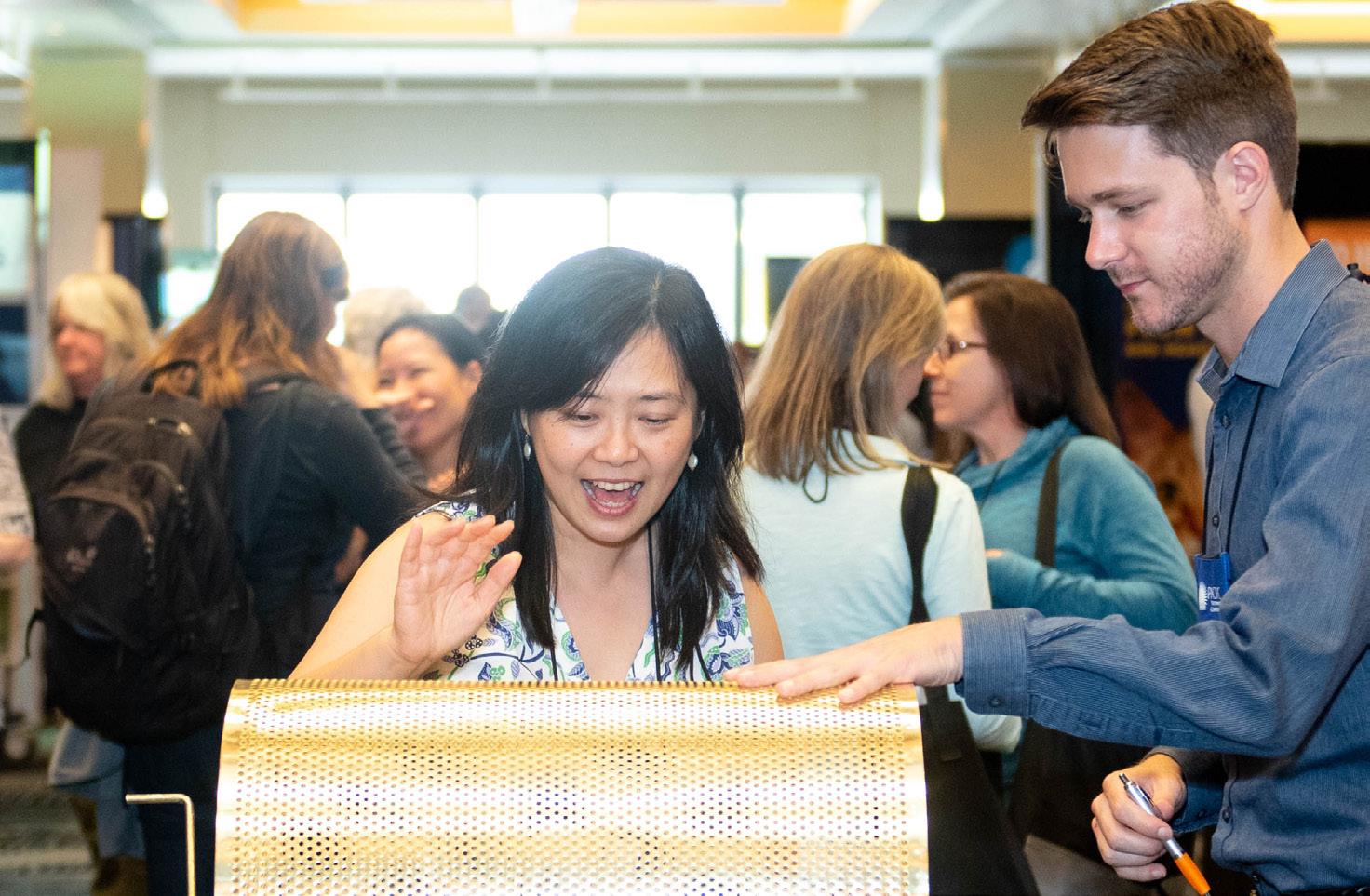
Technician Fair
Saturday • 5:30 pm–7:00 pm
Attention all RVTs and veterinary assistants. This event is for you! Visit with various industry partners and NAVTAapproved academics and societies. Enjoy appetizers, a no-host bar, and have your chance to win awesome raffle prizes. Sponsored by Veterinary Allied Staff Education, LLC; VISC; Boehringer Ingelheim; and Hill’s Pet Nutrition, Inc.
Rabies Titer Testing
Saturday • 10:00 am–2:00 pm
Schedule an appointment to get your rabies titer tested. Phlebotomists will be onsite to collect serum samples from previously immunized veterinarians and their staff. Details can be found under the Events tab at pacvet.net. Sponsored by IDEXX Laboratories.
Raffles
Friday and Saturday
Don’t miss the chance to win one of many valuable prizes to be raffled off throughout the days in the Vet Expo! Sponsored by VISC, JustFoodForDogs, and Preferred Employers Insurance.


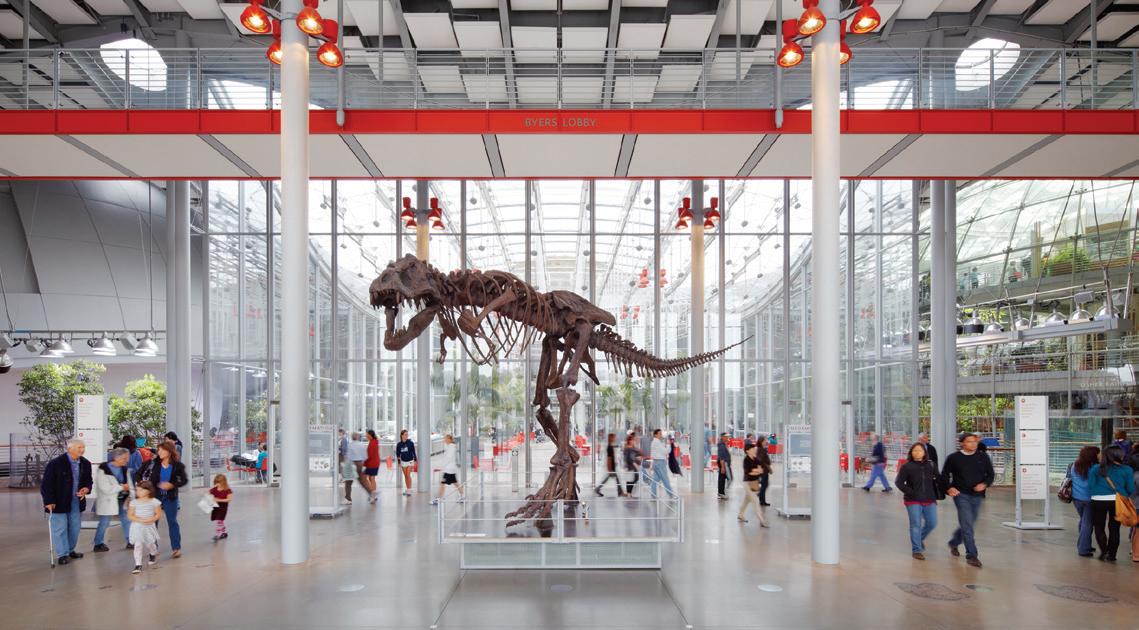






Where all the action is.
The Pacific Veterinary Conference will be held at the Hilton San Francisco Union Square Hotel in San Francisco, California. It is located in the heart of the city’s restaurant, theater, and shopping districts!

Host Hotel
Hilton San Francisco Union Square
333 O’Farrell Street
San Francisco, California 94102
(415) 771-1400 Reservations (800) 445-8667
Online Reservations
PacVet.net/San-Francisco/hotel-travel/
Discounted Room Rate
$264 per night plus tax until June 3, 2020.
*Discounted rate available until deadline or until the block fills up, whichever comes first.
Transportation Details Airports
San Francisco International Airport | flysfo.com
Oakland International Airport | oaklandairport.com
Ridesharing Services
Uber | Lyft
Public Transportation
Bay Area Regional Transit (BART) | bart.gov
Three ways to register
1. Online: It is quicker and easier to register online and pay by credit card. Visit PacVet.net.
2. Mail: Fill out the registration form on the next page and mail or fax it to us with payment.
3. Call: 800.655.2862 to register over the phone.
Full conference registration
Full conference registration for veterinarians, practice managers, veterinary technicians, and veterinary staff includes:
y CE sessions
y Vet Expo admission
y Continental breakfasts (all four days)
y Complimentary lunches and breaks in the Vet Expo (Friday and Saturday)
y Refreshment breaks
y Evening events

y Conference bag
y Access to all lecture notes on PacVet.net and the mobile app
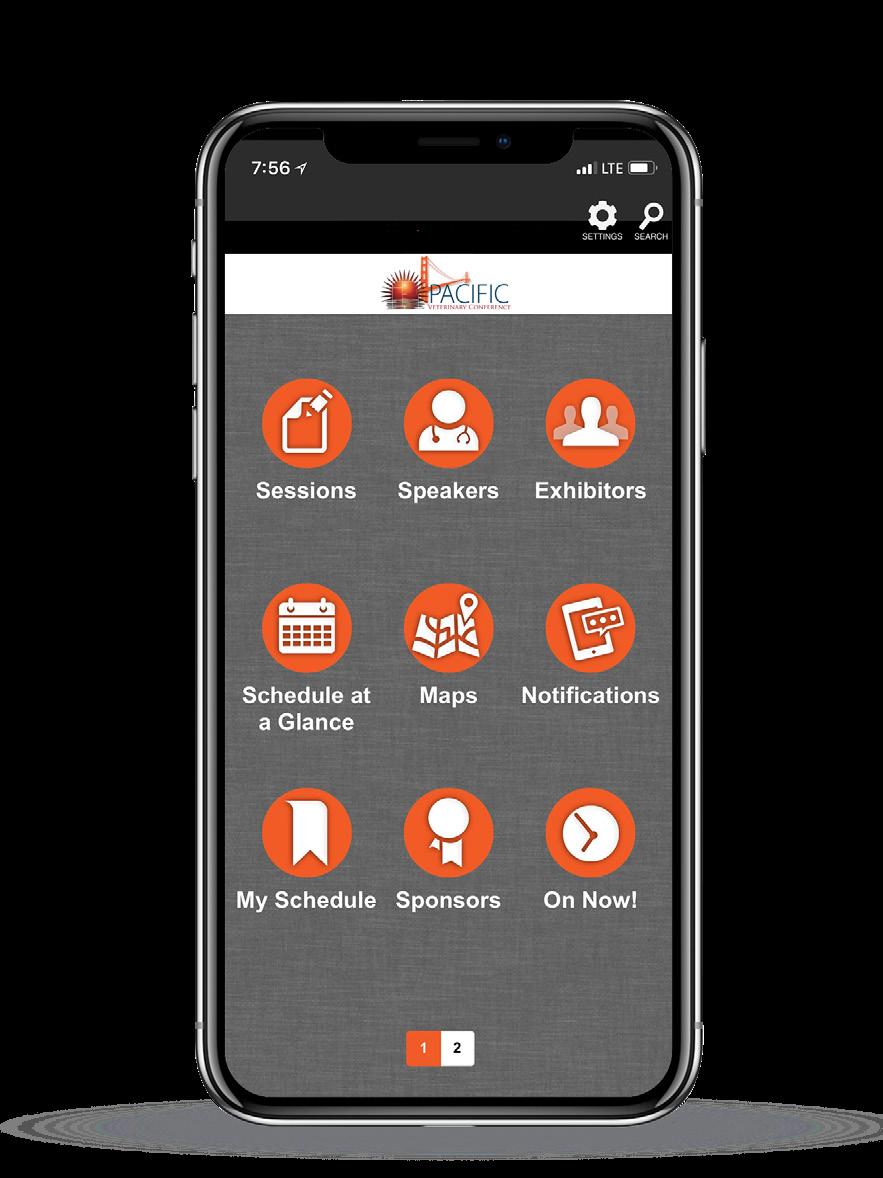
Go to PacVet.net for information on:
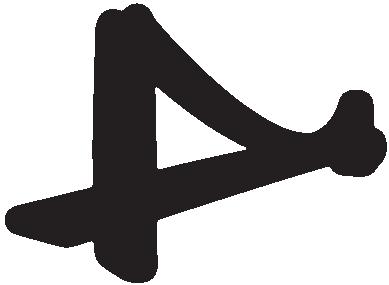
y Staff group registration
y Discount practice team registration
y Sponsoring a student
y Guest badges
y Cancellation policy
y Exhibit hall only registration
Early-bird registration is good through March 9, 2020. There is a $100 savings based on onsite veterinarian full conference registration.
y 1,700+ attendees
y 245+ CE hours
y 125+ exhibitors
y 26.5 hours technicianspecific CE
y 15 tracks
y 4 days
y 3 social media networks
One mobile app that hAPPens to have it all. Get the ultimate app experience for #PacVet2020
One mobile app – one way to connect to it all.
CVMA Member: m Yes m No
June 18–21, 2020 • San Francisco, California
Do you want us to use this information to update your CVMA profile? m Yes m No
Please check one: m DVM m VMD m RVT m CVT m LVT m Practice Manager m Veterinary Staff m Other
Attendee Name (Dr. Mr. Ms.):
Company/Practice:
Mailing Address: m Work m Home
City/State/ZIP:
Phone: Fax:
Email: m Share email with conference exhibitors
School: Year Graduated:
Full conference registration includes: CE sessions, Vet Expo admission, four continental breakfasts, two lunches and breaks in the Vet Expo, evening events, conference bag, lecture notes online at PacVet.net and on the conference app. There is a $15 fee for lecture notes on the flash drive. All conference related materials will be sent to the email address listed above.
CVMA Members bybyby
Full Registration Mar. 9Apr. 20Jun. 3Onsite
m Veterinarian $485$510$550$585
m Veterinarian Grads (‘16-’19) $390$405$425$450
m RVT/CVT/LVT $370$385$405$430
m Veterinary Hospital Staff $370$385$405$430
m Practice Manager $370$385$405$430
Daily Registration (identify which day: m Thu m Fri mSat mSun)
m Veterinarian $250$265$285$300
m Veterinarian Grads (‘16-’19) $200$215$225$235
m RVT/CVT/LVT $190$205$215$220
m Veterinary Hospital Staff $190$205$215$220
m Practice Manager $190$205$215$220
Non-Members bybyby
Full Registration Mar. 9Apr. 20Jun. 3Onsite
m Veterinarian $585$610$650$685
m Veterinarian Grads (‘16-’19) $470$485$505$530
m RVT/CVT/LVT $450$465$485$510
m Veterinary Hospital Staff $450$465$485$510
m Practice Manager $450$465$485$510
Daily Registration (identify which day: mThu mFri mSat mSun)
m Veterinarian $305$315$335$355
m Veterinarian Grads (‘16-’19) $245$255$270$295
m RVT/CVT/LVT $235$245$260$285
m Veterinary Hospital Staff $235$245$260$285
m Practice Manager $235$245$260$285
CVMA Distinguished Life Members
Please call the CVMA office at 800.655.2862 for complimentary registration.
Students bybyby
Full Registration Mar. 9Apr. 20Jun. 3Onsite
m DVM Student (includes 2020 graduates) $130$140$150$160
m RVT Student $130$140$150$160
Sponsor a Student
(Must be sponsord by DVM)
m RVT m DVM $130
Sponsor Name:
Sponsor E-mail:
Sponsor Phone:
Group/Team
m Staff Group $750
Available to any group of four non-veterinarian staff from the same practice who will be attending the conference. One attendee per day, one payment must be made for entire group.

(Please identify name and email for each staff member on chosen day)
Thu. June 18
Fri. June 19
Sat. June 20
Sun. June 21
Name/Designation
Name/Designation
Name/Designation
Name/Designation
m Discount Practice Team (Please identify name and email for each staff member below) One CVMA-member veterinarian and a minimum of two additional registrants from the same practice receive a 10% discount on their full conference registration. Every registrant gets the discount.
CVMA Member:
Attendee Name:
Thursday, June 18, 2020
*CVMA Legislative Luncheon
*Universal Ultrasound Lab Course is limited to DVMs only
Saturday, June 20, 2020
*Must pre-register, space is limited
@ $85 ea. $
$ @ $450 ea.
Fees
Please enter the subtotals from each applicable section below.
@ $99 ea. $
Veterinary professionals only
The exhibit hall only registration is available for veterinarians, veterinary technicians, practice managers, and hospital staff who would like to attend the exhibit hall to meet with exhibitors but are not registered for PacVet 2020. This registration does not allow access to CE sessions or any other events outside the exhibit hall. The purchase of lecture notes on the flash drive is not available with this registration. This registration is not available to industry suppliers including PacVet exhibitors.
NonMember
m Friday $100$150
m Saturday $100$150
Guests (Non-veterinary professionals only)
Only registered attendees may purchase a guest(s) badge(s) for non-veterinary professional(s) to access the Vet Expo. Guest badges do not include food events in the Vet Expo nor permit entry into CE sessions. Meal tickets must be purchased separately. Industry suppliers and PacVet exhibitors may not purchase guest badge(s).
m Guest Badge @ $40 ea.$
m Continental Breakfast for guest(s) @ $45/day$
m Lunch (Friday/Saturday) for guest(s) @ $55/day$
Guest Name(s) Required:
Additional Items
PacVet Logo T-shirts
Women Sizes mSmall mMedium mLarge mXL mXXL
Men Sizes mSmall mMedium mLarge mXL mXXL
Enclosed
@ $15 ea.$
@ $10 ea.$
Tax Included
Purchased T-shirts will be available for pickup with your registration packet.
Payments
Mail completed form along with check or credit card payment to: Pacific Veterinary Conference, 1400 River Park Drive, Suite 150, Sacramento, CA 95815 or fax to 916.646.9156. You can also register online at www.PacVet.net or by phone at 800.655.2862.
Distribution of Materials
The Pacific Veterinary Conference prohibits the unauthorized distribution of any materials (printed or electronic) at its conference, expositions, and symposia. It is prohibited to videotape or record any of the CE sessions. Attendees who violate this prohibition may be expelled from the conference without a refund.
Cardholder
Cardholder Signature
By registering for the 2020 Pacific Veterinary Conference, I agree to the rules and regulations and the cancellation/refund policy of this conference. For complete rules and regulations, visit pacvet.net.
All registered attendees and exhibitors must wear badge during all sessions and in the Vet Expo. Your name badge will be included in your registration packet, available upon arrival at the conference. Please note that there will be a $25 fee for replacement badges.
Badge Scanning Disclosure: As a registered attendee, your contact information is automatically encoded into your badge. When you allow your badge to be scanned in the Vet Expo, the encoding supplies your name, mailing address, email address, telephone number, and fax number. Your badge will only be scanned at your discretion.
All cancellation requests must be made in writing and submitted by email at info@PacVet.net or via fax at 916.646.9156 to the Meetings & Events Department no later than May 12, 2020. There will be a $50 non-refundable processing fee for all paid conference registration cancellations and a $10 nonrefundable processing fee for all guest badge cancellations. For lab cancellations, a $75 non-refundable processing fee will be assessed. A full refund on lab fees will be provided by PacVet should a lab cancel due to inadequate enrollment. Refunds due will be paid no later than 45 days after the close of the conference. No refund will be issued for cancellations received after May 12, 2020.
If you have any changes or additions to this form after submission, please call us at 800.655.2862.
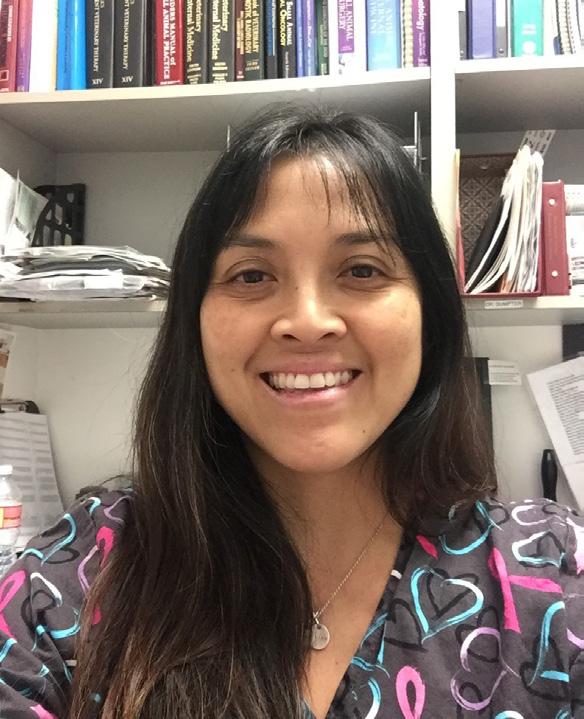 by Angele Sumpter, DVM By
by Angele Sumpter, DVM By
Ifirst applied to the Don Low Fellowship program 15 years ago in abdominal ultrasound. I was a recent graduate from veterinary school and wanted more training in this fairly newish field. I didn’t get selected that year. Or the year after that.
Fifteen years, two kids, and two hospital ownerships later, I applied again. This time in emergency and critical care. Even after 17 years in general practice, I still felt that my emergency procedures were just skimming the surface. I craved the confidence that comes with exposure to repeated emergencies, split-second decision making, and to be honest, being able to fully understand all aspects of blood gases!
The third time was the charm. When I arrived at the William R. Pritchard Veterinary Medical Teaching Hospital, I was giddy like a kid on the first day of school. I met the Hospital Executive Officer Jan Harlan, who gave me a brief tour of the hospital, ending at the critical care ward. Chief of Service Dr. Steven Epstein (one of the smartest people I have ever met) was in charge. It was a busy afternoon. Residents and interns raced past me; the nurses were all focused and hard at work. Every cage was full; baby gates created makeshift patient enclosures on the floor. They held a post-op lung lobectomy Husky satting in the 80s, a collapsing Aussie with an adrenal tumor, and a happy cancer patient (Labrador) in need of dialysis. Alarms were beeping, CRIs of epinephrine and dobutamine were flowing, and the ventilator was being rolled in for a suspected tetanus patient. I was not in general practice anymore.
The 20 days of my fellowship program were broken up throughout the year. During these visits, not only did I have a chance to gain the emergency exposure I was seeking, such as chest tube placements and central venous catheters, I was also able to follow cases into different departments, picking the brains of those experts as well. I was able to watch Dr. Peter Mayhew at work, who gave me pointers on gastropexies. I was also lucky enough to observe radiology head Dr. Eric Johnson, whose hippy persona and laid-back approach when pointing out the cat pancreas and comparing its inflamed tissue to a fried, scrambled egg, helped me remember that sometimes the most complicated things are really not that difficult if we break them down and just work the problem.
One of my most rewarding experiences was participating in student and resident rounds, Stump the Chump, and Journal Club. Rounds allowed the senior students and doctors to present their cases and ask questions in an open, supportive forum. Stump the Chump, held weekly with residents and interns, covered topics ranging from the RECOVER CPR protocol to skeletal electrophysiology, down to the last electrolyte. Journal Club, also weekly, was a chance for all interns, residents, and faculty to sit together and review a current journal article in an evidence-based manner. One of the most impressive of the ECC staff was Dr. Jamie Burkitt. Watching her direct students, residents, and interns; stabilize emergencies; and orchestrate the constantly changing whiteboard, all the while exhibiting patience and control, was nothing less than inspiring. Equally impressive was Dr. Karl Jandrey, ECC faculty staff and associate dean of admissions. This guy is one cool cat. When he is not skiing the Dolomites or visiting the wine gardens in Austria, you can find him in the ICU. So approachable and smart, his supportive teaching style brings out the best in anyone seeking knowledge. He encourages his students, challenging them to dig deeper. Able to make the most mundane topics seem so fascinating, I wanted to spend my days in ICU with him, then sip wine with him and the residents and discuss platelet activation.
As a result of my fellowship, I implemented many changes in my hospitals. These included purchases such as upgrading my DR software and purchasing a second ultrasound machine; and staff education, such as arterial blood collection for all technicians and RECOVER CPR training for all staff. Most importantly, the fellowship reminded me to always strive for continuous learning, ongoing collaboration, and to pass this knowledge on. We GPs can sometimes become too comfortable in our daily routine; it is easy to reach a plateau and just coast. But as we all know, medicine is alive and is always changing. What we learned yesterday may be obsolete today. It is our responsibility and our duty to our patients and our clients to keep up with the changes in this amazing career we are blessed to be a part of.
Improve your skills and learn new ones as a Don Low/CVMA Practitioner fellow. Don Low fellows come from all over California and bring their practical knowledge into the classroom while joining in the learning experience with other colleagues!
The fellowship is a joint activity between the California Veterinary Medical Association (CVMA) and the UC Davis School of Veterinary Medicine. It is designed to meet the needs of California practitioners not available within residencies or other current programs. A committee of representatives from the CVMA and UC Davis reviews the applications and selects the fellows.
Benefits of being a Don Low Fellow
{ Plan your own 20-day specialty program (does not have to be one block of time).
{ Learn in the clinical setting of the UC Davis Veterinary Medical Teaching Hospital, in other school programs and laboratories (such as the Veterinary Medicine Teaching and Research Center), and through interactions with faculty, residents, and students.
{ Earn 72 continuing education credits and learn invaluable skills.
{ Progress at your own pace.
{ No tuition or student fees.
Don Low fellows come from all over California. Apply and bring your practical knowledge into the classroom and join in the learning experience with your future colleagues!
The application deadline for 2020–2021 is May 11, 2020.
This is a great opportunity for specialty training in the learning-rich atmosphere of UC Davis. The fellowships are offered in many specialty areas. Specialties offered in the past include the following:
{ Anatomic Pathology
{ Anesthesia
{ Behavior
{ Clinical Pathology
{ Dairy Production Medicine (in Tulare, CA)
{ Equine Reproduction
{ Equine Ultrasound
{ Lab Animal Medicine
{ Large Animal Radiology
{ Microbiology and Parasitology
{ Neurology/Neurosurgery
{ Nutrition
{ Oncology
{ Ophthalmology
{ Shelter Medicine
{ Small Animal Abdominal Ultrasound
{ Small Animal Emergency/Critical Care
{ Small Animal Medicine
{ Small Animal Orthopedic Surgery
{ Small Animal Radiology
{ Small Animal Soft Tissue Surgery
Interested veterinarians may contact Jan Harlan, UC Davis School of Veterinary Medicine, by calling 530.752.9963, emailing jdharlan@ucdavis.edu, or find details online at ce.vetmed.ucdavis.edu/fellows/don-low-fellowship.
Since 2013, the California Business and Professions Code Section 4836.2 requires veterinary assistants employed in veterinary practices who obtain or administer controlled substances to have a current and valid Veterinary Assistant Controlled Substance Permit (VACSP). The California Veterinary Medical Board (VMB) oversees permitting and has enforcement authority over VACSP laws, including the California Code of Regulations, Title 16, Sections 2087-2087.3. The following Q&A addresses common areas of confusion about VACSPs among permit holders and supervising veterinarians.
Q: Who applies for the VACSP?
A: Only the veterinary assistant may apply for a VACSP. An application cannot be completed by a third party.
Q: What is the best way to apply for a VACSP?
A: Applying online is most efficient. Visit vmb.ca.gov and click the “BreEZe” icon at the bottom of the homepage. Create a user profile and once logged in, select the VACSP application from the dropdown menu in the Applications section.
Q: Can a third party pay for a VACSP on behalf of the applicant?
A: Yes. In the online application process, the payment page will accept a credit card from a third party.
Q: Does having a VACSP mean that a veterinary assistant may obtain or administer controlled substances?
A: Holding a VACSP does not automatically qualify a permit holder to access controlled substances. A supervisory relationship with a California Premises Licensee Manager must be filed with the VMB and the supervising veterinarian must determine that the VACSP holder is qualified to access controlled substances.
Q: What does a licensee manager need to do in order to create a supervisory relationship with a VACSP holder?
A: There are two forms that must be downloaded, completed, and remitted to the VMB in order to declare a supervisory relationship with a VACSP holder. These forms can be found under the Forms/Pubs tab at vmb.ca.gov.
The forms are:
Licensee Manager Acknowledgement Form – This is affirmation of the terms and conditions that a Licensee
Manager must abide by in order to supervise a VACSP holder.
Licensee Manager Agreement Form – This is a supervisory association agreement between the Licensee manager and the VACSP holder.
Q: What happens if a VACSP holder stops working at the practice of the supervising licensee manager or the licensee manager no longer wants to have a supervisory relationship with the VACSP holder?
A: The supervising licensee manager must report the termination of the supervisory relationship to the VMB within 10 days using the VACSP Supervisor Disassociation Application, also found on the VMB website in the Licensee Forms section.
Q: What ongoing obligations does a VACSP holder have to the VMB?
A: VACSP holders are required to keep a current address of record, work location, and their VACSP supervisor name on file with the VMB during all times that they are employed in an animal hospital setting and have access to controlled substances. The VMB must be notified within 30 days of any changes or the permit holder may be subject to monetary fines. Address and name changes may be completed online through BreEZe.
Q: How long does a VACSP last?
A: For initial permits, the VMB utilizes a birth month renewal system. The month in which that applicant was born determines the initial permit period. Initial permits will not be issued for less than 13 months and no more than 24 months. Following an initial permit period, VACSPs will renew every two years.
Q: Do VASCPs need to be displayed?
A: Yes. According to the California Code of Regulations, Title 16, Section 2087.3, VACSPs should be either prominently displayed in the animal hospital setting or the permit holder shall wear a name tag identifying them as a VACSP holder.
For more information about VACSP compliance, visit the VMB website at vmb.ca.gov and search “Veterinary Assistant Controlled Substance Permit” in the search bar.
African swine fever (ASF) is a highly contagious and deadly hemorrhagic viral disease affecting both domestic and feral pig populations. Due to the highly resistant nature of the ASF virus, the epidemiology of this foreign animal disease is complex. ASF can be spread by live or dead pigs, pork products, tick vectors, and via contaminated food waste and fomites. Mortality rates vary depending on the virulence of the virus isolate. Pigs infected with the highly virulent strain may die within one week of infection. Disease detection is challenging as clinical signs (high fever, depression, anorexia, abortion, vomiting, or diarrhea, in addition to hemorrhagic lesions) can also be indicative of endemic diseases, and confirmation of ASF must be made by PCR testing at approved laboratories.
ASF has never been detected in the United States. Currently, the virus is spreading across Asia and Europe, affecting many of our global trading partners. While ASF is not transmissible to humans or a threat to food safety, there are significant economic impacts due to the high mortality rate. These are evidenced by decreased revenue, lost nutrition sources, international trade instability, and high costs of disease control and eradication. The current multi-year, multi-country ASF pandemic has demonstrated the challenges and complexity of outbreak management on an international scale, and the critical need for a global One Health approach to infectious disease containment and management.
There is no approved vaccine for ASF. Prevention of ASF in disease-free countries relies entirely on the implementation of rigid import requirements, heightened disease surveillance, and enhanced biosecurity protocols. California has an extensive wild/feral swine population that provides additional challenges to biosecurity for swine operations, thus emphasizing the importance of active disease surveillance. The United States Department of Food and Agriculture (USDA) Animal and Plant Health Inspection Service (APHIS) in cooperation with the California
Department of Food and Agriculture (CDFA) Animal Health Branch (AHB) has implemented an integrated surveillance plan for classical swine fever (CSF) and ASF. Testing for ASF has now been incorporated into the testing protocol for all identified high-risk animals already sampled for CSF.
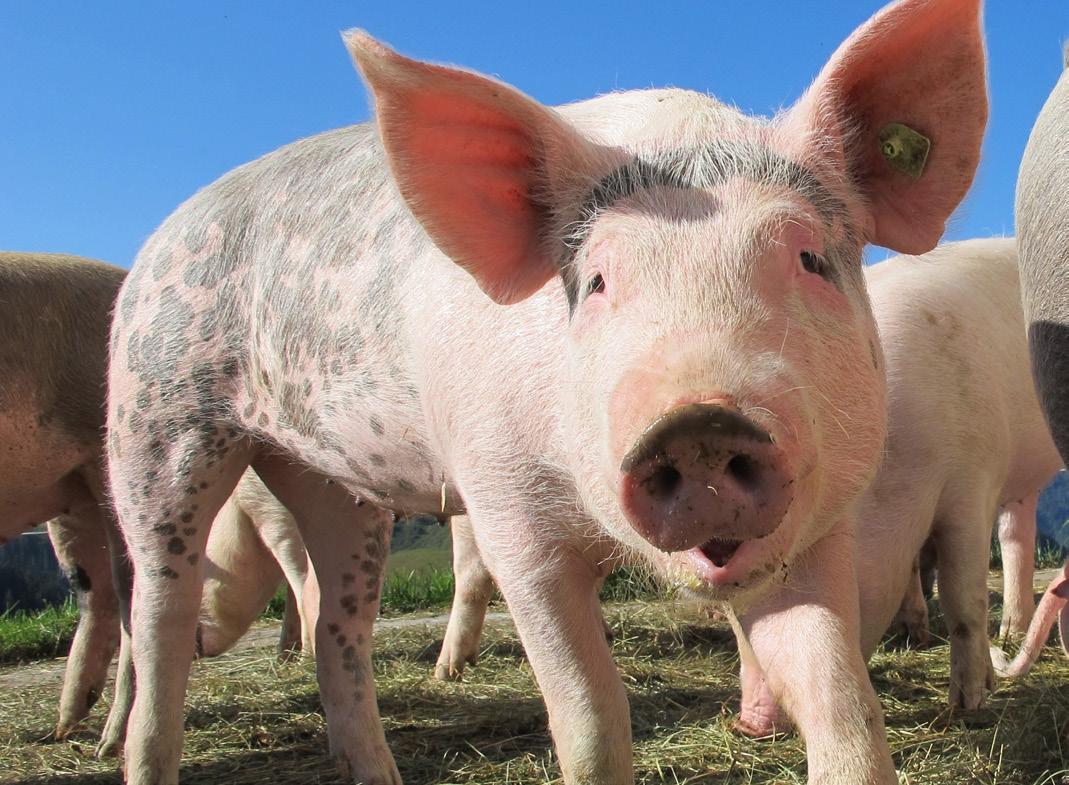
Ensuring disease freedom relies on collaboration and communication of producers, veterinarians, industry stakeholders, and regulatory officials. Swine producers, pet pig owners, and visitors to any facility with porcine present are strongly recommended to practice standard biosecurity measures. These recommendations include the following:
• Clean and disinfect clothing, equipment, and vehicles entering and leaving a farm.
• Avoid feeding human food waste to animals.
• Do not consume or carry any food in animal facilities. Note that internationally imported pork products pose an increased risk of disease transmission.
• Maintain an effective rodent and tick control program.
• Securely fence property to prevent wild pigs from contact with domestic pigs.
Additional resources and information regarding ASF and biosecurity recommendations can be found on the CDFA, USDA, and OIE websites:
• cdfa.ca.gov/ahfss/Animal_Health/Swine_Health. html
• aphis.usda.gov/aphis/ourfocus/animalhealth/ animal-disease-information/swine-diseaseinformation/african-swine-fever
• oie.int/en/animal-health-in-the-world/animaldiseases/african-swine-fever/
• securepork.org/training-materials/biosecurity/
Penetrating solar foot injuries in horses have the potential to be devastating. Survival and return to athletic function are dependent upon what structures are involved in the penetration, as well as time for identification and treatment. The hoof has a number of structures that are at risk of being damaged by a penetration: solar corium, digital cushion, collateral cartilages, collateral ligaments, impar ligament, deep digital flexor tendon, third phalanx (P3), navicular bursa, navicular bone, distal interphalangeal joint, laminae, digital flexor tendon sheath, and suspensory ligament of the navicular bursa. A prognosis and treatment plan depends completely upon which structures are involved, and failure to identify these structures has the potential to negatively affect the outcome. The accuracy of the diagnostic plan cannot be overstated. Magnetic resonance imaging, while potentially the most expensive diagnostic tool, does an excellent job of allowing the clinician to assess all structures within the hoof, and for that reason is the most valuable.
Overall, the success rate following surgery for a return to previous athletic function after enduring a solar penetration, ranges from 30 to 60 percent; a wide and not great range of outcomes. Many studies have reported that the site of the penetrating injury is one of the most important factors affecting the prognosis. In a study by Urraca-Del-Junco et al. (2012), 55 horses underwent standing low-field MRI following solar penetration. Of those 55 horses, 37 had deep digital flexor damage, and the main factor that affected prognosis was structure involvement. About two-thirds of patients that were euthanized had a lesion between the region of the insertion of the deep digital flexor tendon and a site palmaroproximal to the insertion, with 85 percent having a lesion directly within the tendon itself. Unfortunately, in this study, no information regarding accompanying synovial sepsis was provided.
Kilcoyne et al. (2011) reported a 60 percent return to soundness for patients that had solar penetration involving the frog and lateral/medial sulcus. This study consisted of 63 horses, 20 of which had involvement of the superficial corium and digital cushion, and nine with concurrent distal phalanx involvement without synovial sepsis. Those horses had a good prognosis (88 percent). Conversely, those patients with penetration of a synovial structure (34 cases) had a poor prognosis (29 percent).
In a large retrospective study by Findley et al. (2014) which evaluated the outcome of 95 horses with solar penetration undergoing surgery for a septic synovial structure, 36 percent returned to pre-injury athleticism with an overall hospital survival rate of just over 50 percent. In that study, the majority of horses sustained injuries to three structures. Most commonly, the deep digital flexor tendon, coffin joint, and navicular bursa. Reports following the street nail procedure are grim, with a return to soundness for breeding or riding of approximately 30 percent. For this reason, endoscopic evaluation and lavage of affected synovial structures had gained preference for the recommended treatment. A good outcome has been reported in one study using bursoscopy for treatment of septic navicular bursa, with 12 of 16 horses returning to soundness and 63 percent of those returning to previous level of athleticism. A recent study by Schiavo et al. (2018) described the outcome of horses with solar foot penetration, deep digital flexor tendon injury diagnosed with MRI, and without concurrent synovial sepsis. In this study, 100 percent (11 of 11 horses) survived to discharge, with six of 11 considered to have an excellent outcome (back to intended use), and five of 11 sound but not yet in full work. The most commonly affected area of the deep digital flexor tendon (DDFT) in those cases was between the distal border of the navicular bone and its insertion on P3. Without question, location of penetration and injury are hugely important in determining prognosis and outcome.
The treatment plan depends completely on the structures involved. The best-case scenario only involves the sole and/or digital cushion. These penetrations have the potential to lead to lameness secondary to abscess formation. Therefore, paring out the track to allow for drainage and healing from the inside out is the best method to avoid residual bacterial from being trapped in the tissue and festering infection. If the penetration makes it deeper to the surface of P3, the clinician needs to use clinical judgment concerning medical treatment versus surgical debridement of the bone. Sequential radiographs may be necessary to monitor whether a septic pedal osteitis is present and needs curettage. Nails or penetrating linear foreign bodies that penetrate through the frog have the greatest potential to involve the deep digital flexor tendon, coffin joint, navicular bursa, navicular bone, or deep digital
tendon sheath. Historically, the street nail procedure was recommended to open a large drainage hole from site of penetration to these structures, removing infected deep digital flexor tendon en route. This procedure is quite invasive and is considered “salvage” with a guarded to poor prognosis.

Navicular bursoscopy is generally regarded in the literature as the lesser invasive procedure that has the potential to improve prognosis while decreasing morbidity in cases of such involvement. However, if the DDFT is infected and behaving as a harbinger of infection, bursosopy without removal of this nidus will likely be insufficient for complete resolution. A recent report by Suarez-Fuentes et al. evaluated the outcome of horses undergoing a navicular bursotomy
for treatment of contaminated or septic navicular bursitis and found that all the horses survived to hospital discharge and 84.2 percent of horses were able to return to their previous level of use. They concluded that navicular bursotomy in combination with systemic and local antimicrobial therapies is an effective treatment for contaminated or septic navicular bursitis. Additionally, in those cases, a large pattern bar shoe was used to decrease stress on the caudal heel region.
Overall, this disease process is not a great one to encounter. However, advances in diagnostic imaging, specifically MRI, have enabled a more accurate and quicker diagnosis, which in turn has guided more targeted and aggressive management.
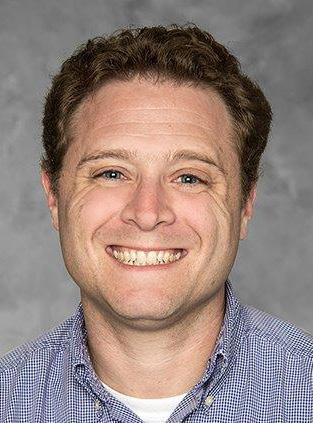
CVMA Online Seminars are a convenient way to get your CE where you want it and when you want it. Most interactive webinars are offered on two different dates and times to fit your busy schedule and can be viewed wherever you have a highspeed internet connection.

Register for these online seminars by visiting the Learning tab at cvma.net.
January 22, 2020 | 5:30 pm–6:45 pm (1.5 CEUs)
This lecture will provide a brief review of the canine dental anatomy. Common indications for dental extractions will be outlined followed by a discussion of the common causes of dentoalveolar trauma along with options for avoiding dental extractions. This seminar is free to CVMA members.
February 4, 2020 | 12:00 pm–1:00 pm Non-supervisors (1 CEU) 12:00 pm–2:15 pm Supervisors (2 CEUs)
February 12, 2020 | 5:00 pm–6:00 pm Non-supervisors (1 CEU) 5:00 pm–7:15 pm Supervisors (2 CEUs)
*Employers with five or more employees must provide sexual harassment education and training for all employees by January 1, 2021. This webinar will meet the requirement for one hour of training for non-supervisor employees and two hours of training for supervisors.
March 18, 2020 | 5:30 pm–6:45 pm (1.5 CEUs)
March 24, 2020 | 12:30 pm–1:45 pm (1.5 CEUs)
This lecture will include a review of common cannabis terminology, provide a detailed explanation of the endocannabinoid system (all components), as well as a description of endocannabinoid deficiency. It will also review the components of the plant in detail and review dosing, delivery, product selection, potential toxicities, and contraindications.
April 1, 2020 | 5:30 pm–6:45 pm (1.5 CEUs)
April 7, 2020 | 12:30 pm–1:45 pm (1.5 CEUs)
** This course satisfies the one hour of California CE requirement on the judicious use of medically important antimicrobial drugs.
For more information and to register for these online seminars, visit the Learning tab at cvma.net or call 800.655.2862.
The CVMA Board of Governors is comprised of 15 governors consisting of 11 geographic representatives and four at-large members. The following terms on the CVMA Board of Governors expire on June 30, 2020.
District Openings
• District II (Southern California and Antelope Valley VMAs)
Peter Vogel, DVM, eligible for another term
• District VI (Sacramento and Mother Lode VMAs)
Keith Rode, DVM, eligible for another term
• District IX (Peninsula, San Francisco, and Santa Clara Valley VMAs)
Julia Lewis, DVM, eligible for another term
District Representation
Any eligible CVMA member may become a candidate for the board by submitting a written petition of intent, signed by 10 CVMA members whose practices are within the district to be represented.
Download the petition by visiting cvma.net and click on Get Involved under the About CVMA tab, or contact Georgia Ashley at the CVMA at 800.655.2862. Completed candidate district petitions must be returned to the CVMA office by March 27, 2020.
Governors-at-Large
• Bryan Halteman, DVM, not eligible for another term
• Nada Khalaf, DVM, not eligible for another term
Applicants for the at-large board position shall not simultaneously run for an elected district board position. After receiving letters of interest and applications from qualified CVMA members, the Leadership Development Committee shall evaluate candidates for the open at-large position. Existing at-large governors must complete an application for a second term.
To view the at-large position description and download an application, visit cvma.net or contact Georgia Ashley at 800.655.2862. Completed at-large applications must be returned to the CVMA office by February 29, 2020.

The idea of using cannabis for the relief of various conditions in both humans and animals has existed for thousands of years. In fact, early veterinary medicines, such as those for colic in horses, were dominant in chemicals extracted from the cannabis plant. It was not until the mid-1930s that the use and general acceptance of cannabis-based medicine ceased with the prohibition era of not only alcohol, but cannabinoids as well. Flash forward almost 100 years and we see an interest in using cannabinoid molecules as a therapeutic agent once again. Although met with legislative challenges for marijuana-based products, and an ingrained stigma from years of prohibition propaganda, science is coming to the rescue by developing and validating the safety, efficacy, and further development of cannabinoid products for both human and animal markets.
For the veterinary market, products containing cannabidiol (CBD) is one of the hottest topics as of late. Industrial hemp is a family member of the Cannabis sativa L. genus, containing less than 0.3 percent THC (the stuff that gets people and animals high) and is the most common source of CBD for these products. Industrial hemp was also recently removed from the DEA’s controlled substance scheduling, making over-the-counter products rampant. Deciding to use any of these products can leave practitioners confused not only about the legal status, but also about what is a safe and reputable product to use in this unregulated industry.
The other unfortunate reality is clients want to use these products and will use them regardless of our opinions as trained veterinary professionals. It is up to us to help counsel pet owners on what we do know about these types of products and how to choose a safe option. The data and status of these products will be discussed at the upcoming PacVet Conference by the author.
Here are a few tips for practitioners when left in this quandary. *For the sake of legality, please understand the following are specific to industrial hemp products alone, not marijuana.
1. Know your source. When evaluating a product, we must be certain of where the cannabinoids are sourced. Was is hemp or marijuana? Any of these product manufacturers should be able to provide you with information on where the constituents came from.
2. Ask for a Certificate of Analysis (COA) from a thirdparty certified laboratory. The COA should include the following: a cannabinoid profile with the concentration of molecules contained in the product; a terpene profile; pesticide and fungicide analysis; residual solvent analysis; mycotoxin analysis and bacterial analysis; and an elemental analysis to ensure pets are not exposed to high levels of heavy metals like lead. If the company is unwilling to give you a COA, walk away.
3. Lean towards products that have actual safety and clinical studies behind them. Currently, there are only two products that have any kind of published data to support dosing or efficacy. Results and dosing from one study cannot be easily extrapolated to other products based on the differences in constituents of each product. Botanical products can vary widely, so batch-to-batch consistency is also something to ask a company.
4. Be sure not to prescribe or dispense these products. Because CBD products purchased over the counter are not FDA approved, veterinarians should consider the VMB’s statement regarding industrial hemp in its cannabis guidelines: vmb.ca.gov/forms_pubs/ cannabis_discussion.pdf.
5. Ensure the product you are investigating does not have other ingredients that could be toxic to pets such as Xylitol, raisins, chocolate, etc.
Mr. Cital is a registered veterinary technician and executive director of the Academy of Laboratory Animal Veterinary Technicians and Nurses. He is also a veterinary cannabis counselor specialist, one of a handful in the country. Mr. Cital is currently the director of education and development for ElleVet Sciences. He serves on advisory boards for local vet tech colleges and is on the Aratana Technician Council of Pain Experts.
Brennah Montague UC Davis (2021)
Darleen Tu WesternU (2021)

Megan Dietz (2022)

Peter Ellis (2021)
Alison Pankowski (2023)
Elizabeth Grant, Alternate (2023)
Mary Zuromskis, Alternate (2022)
Avia Ben-Simon (2020)
Autumn Denison (2021)
Katelyn DeVore (2023)
Christopher Morrill (2022)
Logan McAllister, Alternate (2022)
Trusten Moore, Alternate (2020)
Sarah Snow, Alternate (2023)
The California Veterinary Medical Foundation (CVMF) administers two student scholarships. The first, in partnership with the Veterinary Insurance Services Company (VISC), is the CVMF/VISC Student Scholarship Award The $1,000 scholarships are made possible with donations from VISC as part of VISC’s ongoing commitment to support the veterinary profession in California. Third and fourth-year veterinary students in good standing at UC Davis School of Veterinary Medicine, Western University College of Veterinary Medicine, and California residents attending out of state AVMAaccredited veterinary medical colleges are eligible.
The second student scholarship is the Ron Faoro, DVM, Student Scholarship Award It was established in memory of past CVMA president, Dr. Ron Faoro and is administered by the CVMF. Recipients of this award are presented with $2,500 scholarships for their role in leadership. Second, third, and fourth year veterinary students in good standing from UC Davis School of Veterinary Medicine and WesternU College of Veterinary Medicine are eligible to apply and two scholarships are awarded.
Both scholarships are awarded to qualifying veterinary school students. Applications must be received by April 10, 2020 in order to be considered. For eligibility requirements and application information, please visit the CVMF website (cvmf.net) or contact Laura Phillips by calling 800.655.2862 or via email at staff @cvmf.net.
Students from San Luis Obispo High School’s (SLOHS) Future Farmers of America (FFA) chapter just returned from the 2019 National FFA Convention and career development event finals. After years of practice and competition, the chapter’s veterinary science team were declared national champions out of 45 states and each team member received a $1,000 scholarship. The team’s coaches, agricultural education teacher Dr. Anna Bates, Ed.D. and local veterinarian and CVMA member Dr. Marissa Greenberg, DVM, have been coaching together for almost 10 years.
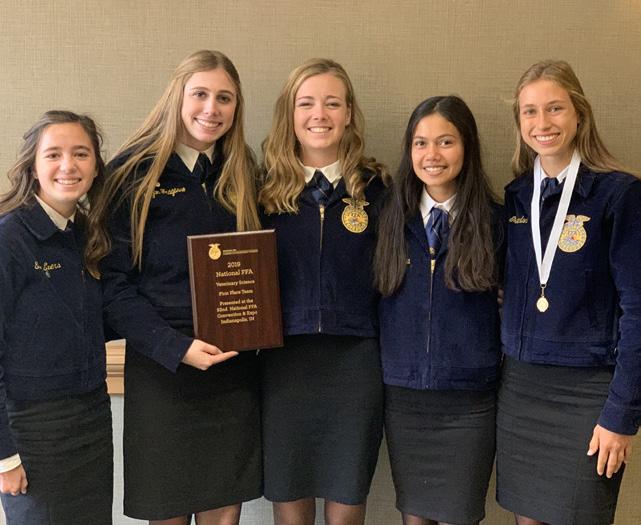
Western University of Health Sciences held its second annual One Health Day activities from November 1 to 2, 2019, which included an interprofessional panel, student poster presentations, and a symposium.
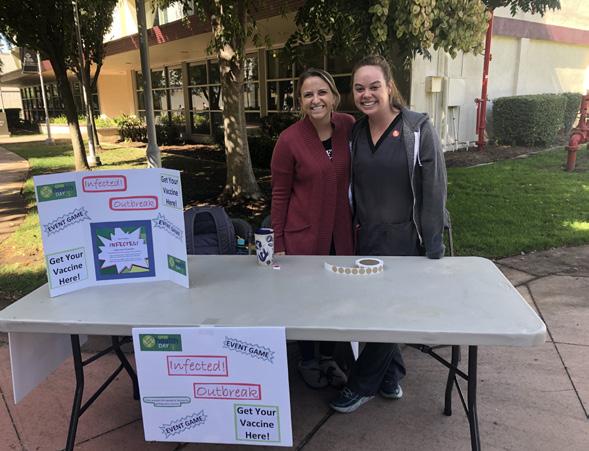
The official observance of One Health Day is November 3. One Health Day raises awareness about the One Health approach to complex health problems involving people, animals, and the environment. Visit onehealthcommission. org/en/events/one_health_day/ for more information.
The One Health Day panel featured presentations and discussions on a variety of topics from multiple disciplines, including veterinary medicine, osteopathic medicine, health sciences, and optometry.
The events were organized by College of Veterinary Medicine (CVM) Professor Suzana Tkalcic, DVM, Ph.D., with support from Senior Vice President for Research and Biotechnology Devendra Agrawal, Ph.D., MBA. Tkalcic also thanked Dr. Steven Henriksen for his support of WesternU’s One Health Day activities from the start.
WesternU students took an active approach to spreading the One Health message. CVM student Logan McAllister successfully applied for a grant from the Student American Veterinary Medical Association (SAVMA). WesternU’s SAVMA chapter organized One Health activities along with the Global Health Club and the Public Health Club. WesternU students submitted poster abstracts that were related to One Health, which in itself was a learning experience.
“We know not only veterinary students but all the students on campus actually do work that they might not even realize connects to One Health,” said CVM student and SAVMA senior delegate Ashley Miller. “So we put a call for abstracts out, and we went around to the different colleges and got ideas. Even just reaching out, we were able to expose people to the idea of One Health.”
Five students submitted posters and gave presentations on how their research connected to One Health. A student panel of judges awarded first place to CVM student Adam Krantz for his project “Comparing the microbiome of two types of vectors inhabiting the same location: Geese Vs. Flies.” CVM student Nathan Sharp won second place for the “Effect of Carotenoid Dietary
Supplementation on the Cutaneous Microbiome in Captive Golden Dart Frogs (Phyllobates terribilis).”
SAVMA organized an “outbreak” where “infected” students got a red sticker. If they came to the One Health table to learn about One Health, they received a “vaccine.”
“One Health is huge and I don’t think people necessarily know the term,” Miller said. “Physicians, veterinarians, the public health sector, and environmentalists all play a vital role in understanding what is going on in each of their sectors. We need to come together. It seems to be opening up. It’s about starting the conversation so the idea catches on.”
“I cannot be more proud of our students,” Tkalcic said. “They were not just present in the audience. They took it to a whole different level and made it a really successful activity. They made it visual for others to embrace it.”
Western University of Health Sciences follows the true idea of the One Health mission, and the goal is to make this a sustainable endeavor every year, Tkalcic said. “Everybody contributes. That’s my end goal. As part of the WesternU family, we have a way to broadcast to each other what we have, how we can do more, and where can we improve world health in general.”
Academia needs to lead the way, Tkalcic said. WesternU already has several translational research endeavors that contribute to the One Health initiative. “We have the expertise, the will, and the means to get funding. We need to be spreading a very clear message that we are here to help. This is what we can do. This is what we are doing, what our research and teaching is doing. We are making the world a better place through the promotion and protection of health.”
To view the One Health Panel, visit mediaweb.westernu.edu/Mediasite/Play/ d7905d77a5d4476bb073da26f965285e1d.
Thanks to the success of its inaugural launch last year, UC Davis School of Veterinary Medicine continues to offer Foundations of Veterinary Business, a unique certificate program in collaboration with the UC Davis Graduate School of Management (GSM). This year’s course expands the in-person learning sessions, and provides a time and costeffective opportunity to develop a solid business foundation and practical skills required to manage and lead successful veterinary practices.
The combined online and in-person program is not limited to DVMs. It is designed to appeal to veterinarians and hospital administrators who may not have the time or budget to pursue a full MBA program, as well as veterinary students with a strong interest in future practice ownership.
“I feel confident that I can evaluate my practice and see what is working and where I need to focus my efforts,” said practice owner, Dr. Sara Ogren, after completing the course last year.
The online portion of the 2020 program opens on May 15 and is followed by in-person sessions at the UC Davis GSM from Friday to Sunday, June 26–28 and Saturday to Sunday, August 1–2. Prior to the first in-person session, participants work at their own pace to complete online modules on managerial accounting, finance, marketing, strategy, and human resources created by GSM business experts. Between June 28 and August 1, participants work together virtually in small groups on a capstone project, analyzing data from actual veterinary practices and delivering presentations in the final session.
Instructors include business experts from the GSM faculty and experienced practice owners and consultants from the veterinary field, including program leader Jim Clark, DVM, MBA. This year’s program will accept up to 40 attendees and is expected to sell out. Graduates will receive a certificate of completion from the GSM, in addition to approximately 20 hours of California CE credit in the area of practice management.
“The Foundations of Veterinary Business Program is a great way to invest in yourself and your future success,” said Sean Gadson, Class of 2021, who participated in the inaugural class. “Concepts that seemed daunting were
broken down and made understandable and applicable to individuals at all stages of their career. I would highly recommend this program to anyone who wants to further expand their knowledge of veterinary business and be able to use that knowledge to take their own career and practice to the next level.”
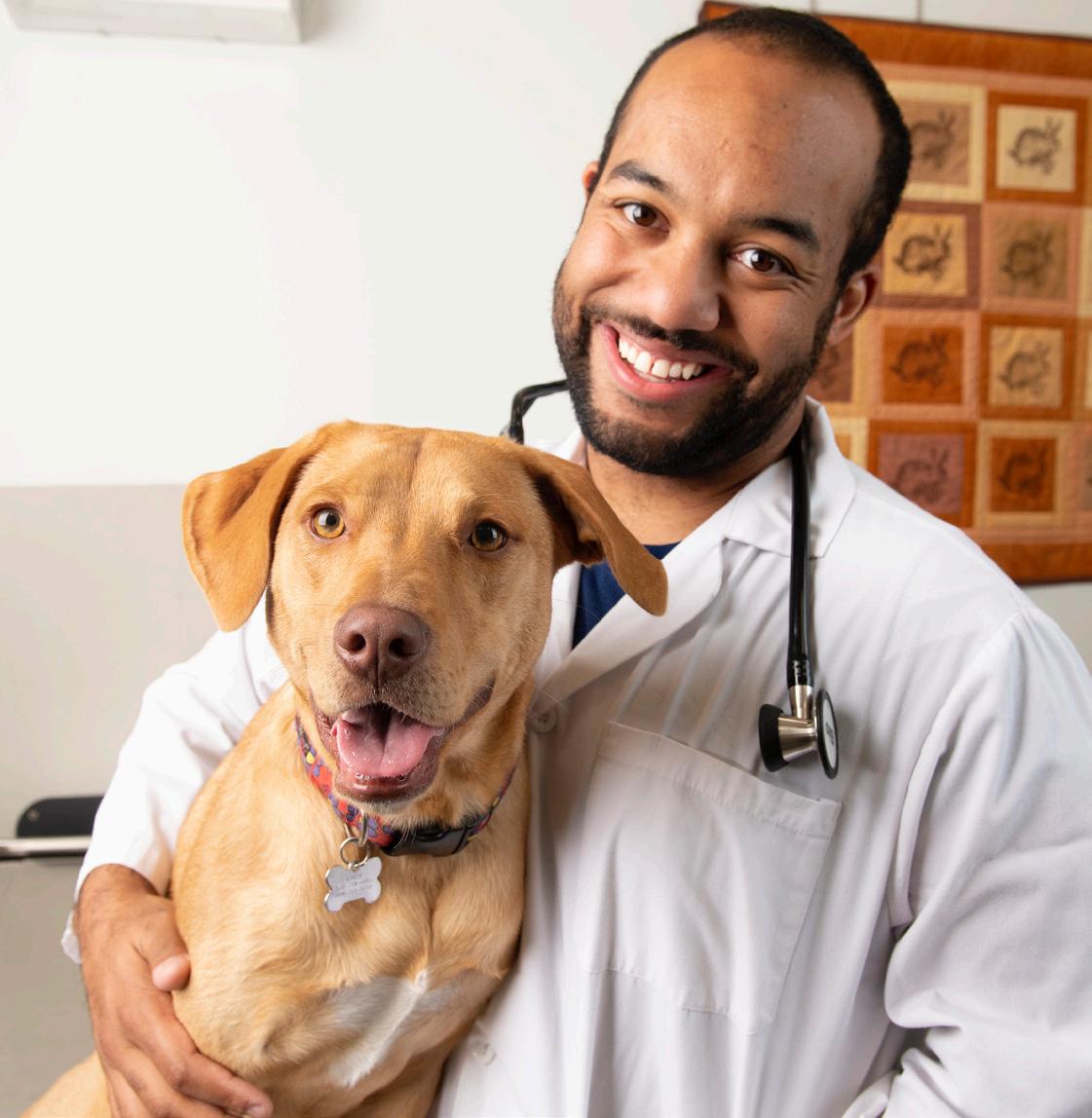
The registration fee for this unique program is $3,500, which includes access to the online learning modules, the equivalent of four full days of in-person CE at the GSM, catered breakfasts and lunches during the inperson meetings, materials, and education fees.
Thanks to Zoetis, the platinum level corporate sponsor, for keeping tuition affordable for students through their generous support.
The registration deadline is May 1, 2020. However, applicants are accepted on a first-come, first-served basis. For more information or to apply, please contact the GSM’s Executive Education office at execeducation@gsm.ucdavis.edu or by calling 530.752.6840.
E llie Wa ttles, D VM, Presid ent, Bro k er
Bek a Herrera , Vice Presid ent, Bro k er
C o nnie Bu rk e, C PA, C VA, C M&AA
LO S AN GELES, CO AST AL: The city is known for its waterfront attractions. A traditional beach town community with a modern twist offers over 250+ businesses, stylish restaurants, an exciting nightlife and chic hotels in a unique urban The practice is located in a great community with excellent amenities. Long established practice is about ~1,100 sq.ft free-standing facility. Equipment includes Abaxis VS2 lab, dental unit, Digital DR X-Ray. 2018 gross revenue $669,000. Very reasonably priced to sell quickly.
V EN TURA CO UN TY: A thriving community located in the heart of Ventura County. Just nine miles from the Pacific Ocean, this city offers an appealing mixture of rural and suburban lifestyles. This family-friendly community is composed of highly educated residents & award winning schools. Excellent demographics and desirable amenities. Efficient, leasehold facility consists of approximately 1,200 sq. ft and 2 exam rooms. Full-service practice is moderately equipped w/ Digital X-Ray and Antech lab. 2018 Gross ~$804,000.
O RAN GE CO UN T Y, N O RT H: The city is located within easy driving distance of beaches, theme parks & mountains and all of SoCal s attractions. Well- established PX located along a major thoroughfare and surrounded by housing communities. Roomy leasehold facility ~ 3,200 sq. ft. w/
exam rooms, 35+ cages & 10+ runs. 2019 Projected Gross ~$700K produced w/ limited
GREATER SAN DIEGO : Wonderful community known for its high quality suburban lifestyle. Easy access to retail, commercial areas, beach cities & outdoor activities. Outstanding school district. Leased facility ~ 2,000 sq. ft. w/ 2 exam rooms, digital X-RAY, digital dental X-RAY & complete inhouse lab. 2018 Gross ~$609,000 produced w/limited DVM hours.
mmunity! Pric e re duc tion, PX of f e re e d at le ss th an a start-up Located in an upscale community w/ excellent amenities, desirable demographics & highly rated schools. Attractive & modern, ~1,800 sq. ft leased facility is strategically located in popular shopping center. Under utilized practice with limited DVM hours. 2018 Gross ~$407,000.
KERN CO UN TY: B e st opportunity in Calif ornia Located ~1 hour North of L.A.. Strong agricultural, oil & general broad economic base. Many amenities & affordable housing. ~3,000 sq. ft. facility w/ 3 exam rooms, 60+cages & 10 runs. Equipment includes ultrasound & digital X-RAY. No weekend hours. 2018 Gross ~$665K. Owner will consider seller financing at asking
MEN DO CIN O CO UN TY: Just 2 hours north of the San Francisco Bay Area & west of Sacramento. This area boasts spectacular scenery & distinctive wineries. Hundreds of miles of hiking trails, verdant hills & secluded lakes residents can easily find solitude & beauty. 1 PT DVM PX. ~1,500 sqft leasehold facility located in a small strip-center. 2018 Gross~ $415K produced w/very limited hours.
SAN B ERN ARDIN O CO UN TY, N O RTH Spectacular, like new, lease-hold hospital includes approximate 4,400 sq. ft with 5 exam rooms and 20+ cages. 2018 gross ~$1,480,000 produced w/ limited DVM hours. CALL FO R PRACT IC
LA N CA STER: Frees- standing, newly constructed, attractive hospital includes over 5,100 sq. ft with 6 exam rooms. Well-equipped, computerized, full-service small animal practice with outstanding, seasoned staff. 2018 Gross ~$2 Million in 2018.
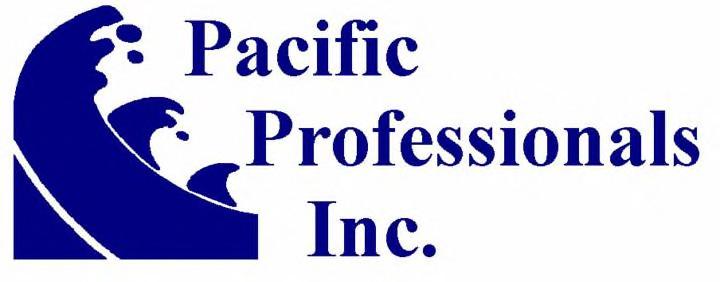
Place your ad in the Career Center at cvma.net. There are two options for classified advertising:
1. Online advertising
2. Online and in one issue of the California Veterinarian
CVMA Members NonMembers
*Price includes the first six lines of text. Each additional line is $10/$11 for non-members. A line consists of approximately 50 characters.
**If you wish to place a print ad only, contact Laura Phillips at 916.649.0599 or classifieds@cvma.net.
Online only
30 days online $149 $199
60 days online $249 $299
90 days online $349 $399
Online and in one issue of the California Veterinarian
60 days online + one issue of the California Veterinarian $299 $349
90 days online + one issue of the California Veterinarian $399 $449
POST AN ANONYMOUS AD OR RESUME
Resume – Post a confidential resume. Go to cvma.net. Click on the Resources tab then Classifieds in the right menu to get started.
Ad – Place a confidential ad by creating an anonymous email address and using it when posting your ad.
NORTHERN CALIFORNIA
Veterinarians
Full-Time Veterinarian. Experienced Veterinarian only. Must be dedicated and a highly motivated team player, with the opportunity for Medical Director in 6 yrs. Our hospital promotes a great work/life balance with a strong emphasis on Customer service. Hours Tues. - Fri. 8-5. Nights, weekends, and holidays off. Email cheree.angus@tcvhosp.com.
Associate Veterinarian (Recent Grads Welcome) wanted to join our fast-paced, well-established- 8 doctor veterinary practice located in a rural community with a low cost of living. We are in the heart of the Central Valley; 2 hours west of Yosemite, 2 hours from San Francisco and 2 hours from Napa. Turlock offers a vibrant nightlife with our restaurant row, boutique shopping, and is a great place to raise a family with great schools and parks. We desire a smart, enthusiastic, energetic, client oriented veterinarian with strong internal medicine and surgical skills. Top of the line equipment including digital radiography, brand new endoscope machine, brand new ultrasound machine, hydrotherapy unit, and more. We offer Canine Rehabilitation and Acupuncture and are a
If you have any questions, please contact customer service at 860.437.5700, clientserv@yourmembership.com, or classifieds@cvma.net.
DEADLINE DATES FOR AD SUBMISSIONS IN THE CALIFORNIA VETERINARIAN:
Issue Deadline
Jan/Feb
March/April
May/June
July/Aug
Sept/Oct
Nov/Dec
December 5
February 5
April 5
June 5
August 5
October 5
If your ad is received after the deadline, it will go into the following month’s California Veterinarian. After the deadline, the CVMA cannot alter or cancel ads. The CVMA reserves the right to edit copy and does not assume liability for contents of classified advertising. Prices subject to change without notice.
Feline Friendly Gold certified hospital. Support staff is phenomenal and great mentorship program. No ER shifts. 2432 scheduled hours/week. Great work/life balance. $110,000$175,000/year base salary DOE with 20% production pay, great benefits, with partnership potential for the right associate (we are NOT corporate). Signing Bonus and Relocation Allowance negotiable. Contact Sara Leimgruber at sleimgruber@ valleycrittercare.com or 925.518.9104.
St. Francis Veterinary Hospital is looking for an experienced and charismatic veterinarian to join our friendly and enthusiastic team. We are a growing companion animal practice located in Daly City, just south of San Francisco with easy access from BART. The practice is equipped with in-house lab, ultrasound, digital x-ray + dental and K-laser. We offer a competitive salary and benefit package. At least 1 year experience preferred. Email drccfalcis@gmail.com.
Associate Veterinarian needed for well-established small animal practice in San Jose, CA. Suitable candidate must be a team player with great general surgical and medical skills. We are a fully equipped, full service hospital. We have all the usual instruments and equipment for diagnostic work up: Abaxis
chemistry analyzer, Idexx CBC, Cuattro digital x-rays, and Progeny digital x-rays. Full surgical suite with monitoring capabilities. Flexible schedule available, but prefer 4.5-5 day work week. Part time considered. No after hour emergencies. Great salary and compensation package including health care allowance, liability insurance, CE allowance, paid time off, Simple IRA, state/DEA licensing fees, CVMA and AVMA memberships, and pet care discount. Email bphpet@gmail.com.
Looking for compassionate, enthusiastic small animal veterinarian to work at our 2-doctor practice in beautiful South Lake Tahoe California. General surgery, medicine, ultrasound, digital radiology, dentistry, and more. No after-hours emergency. Commitment to our clients and patients an absolute must. Flexible hours, pay based on production. Email npowell@bluelakevet.com.
Northpointe Veterinary Hospital in Yuba City, CA is looking for an experienced clinician to join our 24/7 hospital. We have just moved into a new 10,000 sq ft state-of-the-art hospital facility voted 2018 Hospital-of-the-Year by DVM360. Because we are a 24-hour hospital we have the flexibility to adapt your work schedule to meet your lifestyle. Join our team of over 50 staff members dedicated to compassionate patient care. The hospital is located approximately 45 minutes north of Sacramento or UC Davis. Work in a modern, very well equipped AAHA accredited hospital with great support staff who are able to provide excellent technical support for your cases 24 hours a day. We offer a generous benefits package which includes medical, dental and life insurance, vision plan, 401K with match, CE allowance, licensure and dues, 4 weeks paid flexible time off and more. Compensation is guaranteed base salary of $112,000 to $200,00 (depending on work hours), with additional production bonus. Visit our web site at: npvethospital. com. Email resume and cover letter to: ssandersdvm@gmail. com or fax to: 925.938.1639.
Mendocino Animal Hospital is a small animal veterinary hospital located in the heart of Mendocino County in Ukiah, Ca. Our location is ideal in that we are able to see all types of medical, dental and surgical cases. However, we are less than one hour away from two 24-hour specialty centers. We have many of the features you would expect in a full service practice such as: Digital x-ray; Digital dental x-ray; Ultrasound; In house laboratory; Endoscope; Trained support staff; Skilled veterinary mentors; Pro Sal Model, with earnings between 100-140k. We are AAHA accredited and Feline Friendly Certified. We are privately owned, and plan to stay that way. Partnership potential is available to the right candidate who is interested, and would like to work toward that. Ukiah is a great place to work, live and
play. The cost of living is relatively low for California while wages are very competitive. We have many of the conveniences that your daily life would expect such as good restaurants, shopping and fitness centers. The real benefits of living in Ukiah come to light on your days off! We have numerous wineries to explore, acres of redwoods to wonder, oceans, rivers, and lakes to play in, horseback riding, hunting, fishing, kayaking, mountain biking, dirt biking, 4x4 trails, hiking, camping, disc golfing, and more! To learn more about us, check out our website at www. mendocinoanimalhospital.net or see for yourself on YouTube! Email mendocinoanimalhospital@sonic.net.
Looking for compassionate, motivated and energetic veterinarians on a full or part-time basis. AAHA accredited Angels Camp Veterinary Hospital is located in the Sierra foothills, two hours from San Francisco, Yosemite and Lake Tahoe. Join our team and enjoy the opportunity to exercise all your veterinary skills. Our facility includes surgery and dental suites with dental x-ray, ultrasound, endoscope, digital x-ray and a community based support staff. Generous doctor to support staff ratio, including RVTs. Collaborative doctor environment. Great salary and compensation package. Earn monthly productivity bonus. Our focus on goals and professional development provides opportunities for personal growth and advancement. Contact Dr. Tom Heermance DVM at: heermata@ yahoo.com. Visit our website at: www.angelscampvet.com.
We operate busy and successful outdoor pet vaccination clinics which serve 6 counties. We would like to meet a Ca Licensed Veterinarian interested in helping on a relief basis or working with the intent of assuming the business in the future. Contact Geoffrey Antipa, DVM or Toni Antipa 916.425.5991 or email office@dogandcatshots.com.
Located in the heart of California, Cedar Veterinary Hospital is seeking enthusiastic and progressive full-time and part-time associate veterinarians to join their practice. They are a growing and highly leveraged hospital. They have 3 FT associates supported by 25+ experienced veterinary assistants and they have a very loyal and long-term client base and continue to receive a steady flow of new patients. The clinic boasts of new Eklin dental and regular digital radiography, new ultrasound, complete comprehensive Abaxis lab equipment, and scoping equipment to name a few. The most valuable part of this job is getting to work with a rewarding and amazing team that will support you! This is an excellent time to join their team as they are undergoing a full-building remodel that will feature a state-
of-the-art and a high-tech environment. Their 10k sq. ft. building will boast of 14 exam rooms, two surgery suites, and a cozy doctor area. We offer a very competitive compensation package that includes a base salary with production-based bonus and a benefits package with generous employer cost sharing that includes medical, dental, and vision, flexible spending, and a 401(k)-retirement plan. They also offer a generous educational (CE) assistance program that supports ongoing learning and development. Interested candidates can forward their CV to Dr. Nicolaas Reijne, nreijne@cs.com. Inquiries will remain in strict confidence. www.yourvet.com.
We are a small animal hospital located in Imperial, California in an area with a need for more veterinarians. We mostly see dogs and cats, but we also see birds and a small number of exotic animals. We do many spay and neuter procedures, which would give you plenty of opportunity to improve your surgical skills, and practice your veterinary knowledge while working with an experienced veterinarian and staff. New grads are welcome to apply. Health insurance stipend, CE stipend, and paid time off available. If interested direct any inquires to Craig Satow DVM, at desertdvm@aol.com.
We believe healthy cats lead to happy lives. We have two beautiful locations in sunny Southern California – one in Marina del Rey and the other in Tustin. We see a mix of preventative care, internal medicine, behavioral medicine, dentistry and surgery. Both practices are paperless using Idexx NEO cloud based software and fully integrated with Idexx in-house lab equipment, Idexx digital x-rays and digital dental x-rays. Our hospitals are staffed with teams of tenured cat-focused employees that know how to give the level of customer service needed to wow our clients and create exceptional experiences. We’d love to have you join us! Email joni.anderson@yahoo.com.
Did you become a veterinarian to work at a giant, production based, standardized medicine corporation?...neither did we! Love practicing medicine and doing what is right for the patient! Tired of being pressured to meet corporates idea of “standard of care” and production goals? Then we are the practice for you! We give our doctors the freedom to practice medicine and treat patients the way in which they envision. Shane Veterinary Medical Center is a family owned small business. Since 2008 we have strived to provide outstanding care to our patients and the people who care for them. We are seeking an associate veterinarian to join our busy three-doctor practice in beautiful Marina del Rey, CA. We offer a consistent 4 day work week. Our
well-trained, dedicated staff allow you to practice the highest quality of veterinary medicine. We encourage a positive, teamoriented environment to facilitate optimal patient care and client service. Our desired candidate would be highly motivated, team oriented and passionate about practicing quality medicine. We welcome new graduates and experienced veterinarians. We support preventative and alternative medicine practices and innovative thought. Excellent compensation package and competitive salary. Email svmchire@gmail.com.
We are looking for a full time associate, for a busy single doctor small animal practice, in the beautiful Kern River Valley, in sunny Southern California. Work with a vet who loves her job and has an awesome and very loyal staff. We are a fully equipped hospital, with in-house lab, Digital X-ray, Ultrasound, a licensed technician and a certified veterinary assistant. We are located in the Southern Sierra Nevada mountains, just minutes from Isabella Lake, the Kern River and ski slopes. We have an extremely loyal and compliant clientele, who want the best for their pets. An applicant with medical and surgical experience would be preferred; however, our Veterinarian enjoys mentoring less experienced doctors. Compensation includes employer paid health insurance, paid vacation, paid holidays, paid continuing education and a yearly salary. If you love practicing innovative medicine, small town friendliness and you have an active lifestyle, this is the place for you. Email shari_kvah@hotmail.com.
VetRelief.com welcomes DOCTORS and HOSPITALS to teamup and conveniently match your employment expectations. HOSPITALS: create an account, then post your jobs which include job’s dates, shifts, and your project’s description. Relief veterinarians will bid on your jobs. DOCTORS and HOSPITALS: together, you may negotiate conveniently and securely via VetRelief’s web site to ensure a good match. There is no commitment until Doctor and Hospital agree. Learn more at https://vetrelief.com, smarthire@vetrelief.com, call or text 949.899.(VETS)8387.
Riverside Park Veterinary Clinic is a busy 5-doctor AAHA practice looking for a highly motivated, hardworking individual for longterm employment. Our state-of-the art practice includes surgical laser, digital radiology, full Idexx laser, ultrasound and monitoring equipment as well as highly trained team of licensed technicians and assistants. We are located in beautiful Southern Oregon where outdoor activities abound. Excellent benefit package including medical, vision, dental, 401k, CE, PTO, 5k relocation reimbursement and 20k signing bonus. Email rpvc111@yahoo.com.
Central California mixed animal practice, established 1967. Freestanding 3000 sq. ft. facility on 1 acre on highway frontage road with easy access and plenty of parking. Present facility built in 1975. A well equipped, turn key practice for a veterinarian wanting to start a career. Previously it operated as a 2 DVM practice with a more than adequate income. Present owner is having to retire due to medical illness and personal family issues and is unable to continue work. Price is $435,000 - includes RE, equipment and inventory. Contact Kvvet@kernvalley.com. Tel: 760.499.4092
For Sale: House Call Mobile Practice serving Monterey and San Benito Counties since July, 2004. Owner preparing to retire soon. Patients are Companion Animals, mostly dogs and cats. Practice has grossed over $300,000 per year for the past 8 years. Mobile
Clinic has Anesthesia and Surgical Equipment, Dental Cleaning Equipment, Autoclave, and Idexx Digital Xray Machine/Processor. Asking price $150,000. For questions and offers, email: drmeldwhite@gmail.com.
FOR SALE: GREENFIELD ANIMAL HOSPITAL 405 S. Main St. Yerington, NV 89447. Two DVM Veterinary Practice: Small Animal 98% Equine 2%. 21 years in service, new 4560 sq ft building 2009: 4 exam rooms, 2 surgery tables, radiology & portable rads, complete in-house pharmacy, complete in-house lab. Working 2 DVMs 4.5 days a week, minimal after hours, no weekends. Small town life with world class recreation, Lake Tahoe (1 hour 15 minutes west), and Reno’s entertainment & shopping (1 hour north). Net profits & new clients per month show steady growth. NO STATE INCOME TAX. Practice $621K Property & Building $610. 775.315.6540 Dr. Justin.
Practice Safety
Regulatory Compliance
Legal Issues
CVMA InLine is a dynamic workplace safety and compliance program designed to assist CVMA members with workplace safety, employment issues, and laws and regulations that a ect the veterinary profession.
For more information, visit cvma-inline.net or call 800.655.2862.
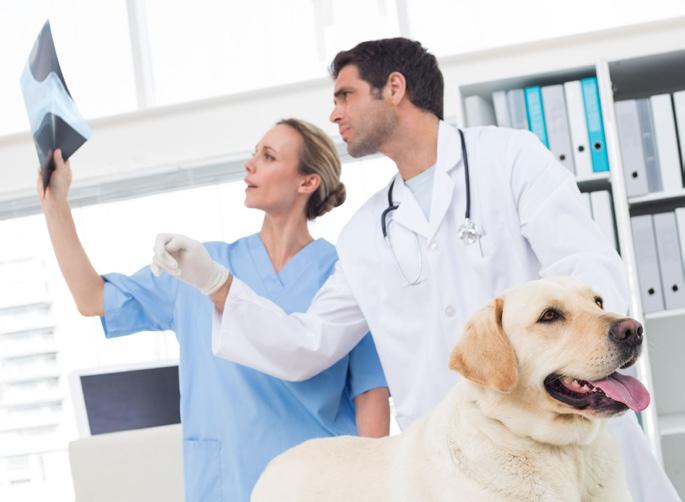





Your profession is unique. Your
should be, too.